Anyone who thinks that fashion is just clothing may now leave the room. Personal style is political, self-confirming, and full of complex messages.
Limit(less) is an ongoing photography project by Mikael Owunna documenting the fashion and style of LGBT Africans in diaspora. "As LGBTQ Africans, we are constantly told that being LGBTQ is somehow 'un-African,' and this rhetoric is a regular part of homophobic and transphobic discourse in African communities," he says. "This line of thinking, however, is patently false and exists an artifact of colonization of the African continent. Identities which would now be categorized as 'LGBTQ' have always existed, and being LGBTQ does not make us 'less' African."
Limit(less) explores how LGBTQ African immigrants navigate their identities and find ways to overcome the supposed "tension" between their LGBTQ and African identities.
We excerpted just a few of the growing collection of profiles on the Limit(less) site. Page through below for individual profiles in this project.

Odera: Queer Nigerian-American
What's your name, country of origin, ethnicity, preferred gender pronoun, and how do you identify in terms of your LGBTQ identity?
My name is Odera, and my country of origin is Nigeria. My ethnicity is Igbo (it's even part of my family name). My preferred gender pronoun is they, but I truly call and respond to many gender IDs: He, They, She, Odera, Sailor Senshi, Goddess, Gw0rl.
Recently I have been embracing the Q of the LGBTQ. Queerness allows and builds beautiful transformative magical energy that transcends labels and boundaries. So I definitely embrace ~*Queer*~
How would you describe your style?
I am a hybrid RPG job class: Summoner/Dancer. My magic comes from the Afro-Diaspora. Instead of "Ifrit" or "Bahamut" I have Anyanwu. Instead of "The Magus Sisters, I have "The Vogue Knights." So essentially when I dress myself I like to think, "What outfit will help me unlock a new deity living inside of me? Do I need an MP Recovery robe? Or Charisma granting bootyshorts?"
But sometimes I am just a magical girl anime transformation sequence that takes place on an Afrofuturist Soul Train line.
How do you think your style incorporates/blends elements of your African and LGBTQ identity?
When it comes to blending the two elements, I really enjoy playing with silhouette, pattern, and color. My queer magic helps me unplug from the matrix of gender-policing. And then my African identity functions as the cradle of creativity.
So for instance if I have on a really large and billowing boubou/dashiki (which usually comes with a matching pair of large billowing pants), I will pair it with really tight complimentary bottoms instead. Sometimes it will be more subtle, like opting for drop crotch/parachute pants and a moment of color and pattern that reminds me of Nigerian textiles.
Sometimes this results in less African textiles and more Milli-Vanilli cosplay, but ultimately I treat my fashion choices as extensions of my illustrations/paintings. So the content addresses the merging of worlds, and then visually I focus on balance, attention to shape, gradients of detail and pattern, color palettes, and composition via color.

Was there ever a time where you felt pushed away from your African or LGBTQ identities? If so, how did you overcome that personally?
I think the world tends to place African and LGBTQ identities in opposition with each other. Africans typically declare LGBTQ as a very white/american/un-african concept #sin #sodom #gomorrah #YASgawdGiveitupforLilith #ChristianFundamentalistColonizersinAfrica. While parts of the LGBTQ community allies itself with white supremacy and patriarchy #WhitePenisastheHolyGrail.
So I have never felt at home with just one community, or any place that doesn't allow for intersectionality.
I am lucky because, I have built a home and inner fire within myself that simply does not accept the binary. And it certainly doesn't accept others defining my identity. It simply isn't in my nature.
How did I build that home within myself? A big part of it is probably having allies and representation of queerness at a young age.
How is your relationship with your family, and what does being "accepted" by your family look like for you?
One of my sisters is truly the best friend/family/community you could ask for. She is the definition of a survivor, protector, and healer.
I think alot of my strength comes from her being in my life. And I am so full of gratitude for her.
When I *first* tried to respond to this question the first words that came to my mind for my family were "Crazy, Toxic, and Trauma."
But it would be ridiculous and unfair to not mention "Dedication, Strength, and Resilience."
What would you have to say to people who say that being LGBTQ is "un-African"?
The most beautiful part about being African/of the African Diaspora is our resilience.
Where are you comfortable with people reaching you on social media (include links to your accounts that you're willing to be shared with each post)?
Tumblr, Twitter, Facebook, and website


Carol Chibueze: Queer Nigerian-American (shot in Trinidad)
What's your name, country of origin, ethnicity, preferred gender pronoun, and how do you identify in terms of your LGBTQ identity?
My name is Carol Chibueze. I was born and raised in the United States. I am Nigerian-American and biracial (half white). My pronouns are she/her/hers. I don't really identify as anything in particular, but I feel most comfortable with the label "queer."
How would you describe your style?
My brother from another mother, Gabriel, once described my style as "Erykah Badu in '95 mixed with Maya Angelou" and I think that is pretty accurate. Black auntie swag and Black Femme Power are also terms that describe my style pretty well. Another friend, Richie, has called me a "Naija Eartha Kitt" when describing my clothes, which I would love to think is true, since Eartha Kitt is a personal hero of mine.
How do you think your style incorporates/blends elements of your African and LGBTQ identity?
I don't purposefully incorporate my sexuality or my African heritage into my look. I usually dress based on the weather and the events of the day, with an emphasis on feeling good in what I wear. I love to wear lots of colors and interesting patterns -- often these can be Nigerian cloth that I wear in the form of dresses, shirts, and lots of headwraps. I wear a lot of African jewelry that I bought when I visited Nigeria as a teenager.
Recently I have felt a lot more at ease wearing stereotypically feminine clothing as I explore my identity as a black femme woman. When I was younger, I used to be a lot more concerned with being read as "not straight" through how I dressed, but as I've become more comfortable with myself, I stopped caring about that. I've tried to move away from coding myself or others as queer through something as subjective (and often racialized and gendered) as fashion. Still, I have always liked to incorporate more tomboyish accessories like snapbacks, blazers, bowties or men's shoes into my wardrobe, and I like playing with stereotypically feminine and masculine attire, occasionally at the same time. I sometimes like to dress more masculine when wearing formal attire; other times I will wear full Nigerian traditional clothes, especially my late grandmother's headscarf. But overall I don't consciously think about how my sexuality and my culture inform my style -- I just wear what I want.

Was there ever a time where you felt pushed away from your African or LGBTQ identities? If so, how did you overcome that personally?
These identities are inextricably linked for me, and I have never necessarily felt like they were/are opposed. However, I have often felt pushed away from my Blackness and African-ness in LGBTQ spaces in the U.S., which can be very white, sometimes racist, and erasing of QTPOC perspectives. There have been a few situations where I felt like my queerness did not fit in certain African spaces, but I have encountered the former much more than the latter. I feel most at home among other queer folks of color, especially Black queer people, and that has helped me overcome any lingering feelings of dissonance between my sexuality and my heritage.
How is your relationship with your family, and what does being "accepted" by your family look like for you?
This is a difficult question for me. I resent Western notions of "coming out" and unconditional "acceptance" pushed as the ideal narrative for all LGBTQ-identified peoples. These are very white, mainstream concepts that do not allow for the dangerous, destructive effects colonialism, imperialism, and capitalism have had on brown and black countries that are often lambasted as "homophobic" or "intolerant" without context. I have never "come out" and my family already accepts me as their daughter, niece, goddaughter, sister, etc. For me, my sexuality does not necessarily change the strength of our bond, even if they don't always embrace it wholeheartedly.
It's also something that looks so different for everyone, especially among the diversity of queer folks of color. Sometimes "acceptance" means baby steps, hard conversations, silences, inside jokes, undiscussed topics, tears, laughter, probing questions, explanations, leaps and bounds, and other times it feels like nothing has ever changed. At the same time, it does not mean it is easy when the people you care about most don't understand or reject part of who you are or how you live/love. So I don't focus on being "accepted" by others in a traditional sense, including some of my extended family. I know who cares about me no matter what and I am secure in that knowledge.
What would you have to say to people who say that being LGBTQ is "un-African"?
I don't really have anything to say to that kind of bigotry. Go read a book, I guess?
Where are you comfortable with people reaching you on social media?
Tumblr and Instagram


Gesiye: Bisexual/Queer Nigerian-Trinidadian (shot in Trinidad)
What's your name, country of origin, ethnicity, preferred gender pronoun, and how do you identify in terms of your LGBTQ identity?
My name is Gesiye, which in Ijaw means "someone of truth." I'm Nigerian-Trinidadian, born and raised in Trinidad & Tobago. My pgp's are she/her/hers and I identify as bisexual/queer.
How would you describe your style?
As my friend Gabe recently said, it's more of a "postmodern Angela Davis."
I mostly wear neutral colors, with the occasional head wrap or print, staying pretty comfortable and casual.
How do you think your style incorporates/blends elements of your African and LGBTQ identity?
I don't limit my African or LGBTQ identity to one form of expression, everything I wear is and can be a blend of these identities because that's who I am and how I'm choosing to define it.
Was there ever a time where you felt pushed away from your African or LGBTQ identities? If so, how did you overcome that personally?
I grew up in the Caribbean, so my African identity is closely linked to that part of the diaspora. In Trinidad, colourism/shadeism plays a huge role in structuring privilege in everyday life. For me, benefitting from the privilege of having lighter skin in my society also meant that I was constantly being pushed away from my African heritage, growing up being told that I was "not really black," or that I was "too light to be Nigerian."
On the other hand, growing up knowing that I was attracted to both men and women, while also being a cis femme woman, meant that I was constantly struggling to prove my identity to myself and others. Bisexuality sometimes feels less accepted, because people would rather you "make up your mind and just choose," or "get over this phase" rather than "be greedy" (literally things I have heard). My ability to pass as a straight woman grants me a different level of safety than those who are more visibly queer but can also be the means through which people erase parts of my identity. I had to grow to be comfortable with who I am, and how I choose to express myself outside of what society expects; there's no way to satisfy what everyone thinks I should be, and no way to be happy living as someone else.

How is your relationship with your family, and what does being "accepted" by your family look like for you?
I'm lucky to have a great relationship with my family, being accepted for me means being treated like my sexuality is just another part of who I am as a person, and not as a defining trait that should shape every interaction we have together.
What would you have to say to people who say that being LGBTQ is "un-African"?
I hear this a lot in the Caribbean, that the LGBTQ experience is un-African or un-natural. From the homophobic music that we all dance and sing along to, to the fact that it's still illegal to have sex with someone of the same gender in Trinidad. It's exhausting. I wish we would accept/understand that gender-fluidity and same sex attraction are historically indigenous and African.
Where are you comfortable with people reaching you on social media?
My instagram is @gesiye and my website where I post my photography and video art is www.gesiye.com


Tyler: Queer Kenyan-Somali (Canada)
What's your name, country of origin, ethnicity, pronouns, and how do you identify in terms of your LGBTQ identity?
My name is Tyler. I'm a Kenyan-Somali-Canadian. Pronouns, he and him. I identify as queer.
How would you describe your style?
I would describe my style as mysterious. Not mysterious in terms of being confusing to others, although that very well may be the case. Rather, my style is mysterious to me. I'm always surprised by what I end up leaving the house in, but it also almost always puts a smile on my face.
How do you think your style incorporates/blends elements of your African and LGBTQ identity?
As the cliche goes, my style is a way for me to express myself -- and my multiple identities, those discovered and undiscovered, all play into that. When I wear my kikoy I feel like I am on the coast of Kenya being enriched by the sun and bewitched by the aroma of spices. When I wear my Kenya bracelet, I feel connected to the growth and prosperity of home. When I wear my traditional necklaces I feel the halo of my ancestors resting around my neck and upon my shoulders. When I wear my yellow bracelet, I feel connected to the dirt road near my home in Nairobi where I found it abandoned.
As per my queer identity, my style is not regulated by arbitrary gender norms. If I want to wear short shorts and a dashiki then I do. I guess my queerness, in part, fuels my ability to transcend the expected. And that is what I try to do with my style, transcend the expected and, in many ways, come home to myself.
Was there ever a time where you felt pushed away from your African or LGBTQ identities? If so, how did you overcome that personally?
During a conversation about queerness, African(ness), and identity a good friend of mine made a statement that has stuck with me ever since. He is also a queer East African man, a Black body, living in Canada. He said that one difficulty in being a queer African man in the Canadian diaspora is that within our own African communities we are expected to be hyper feminine, as a consequence of our sexual orientation while within the Canadian queer scene we are expected to be hyper masculine as a result of our Blackness. I couldn't agree more.
In many ways we are pushed out of both communities in unique and specific ways and pulled in in just as complex ways. For me, this is a source of power. When we are neither here nor there, we are free to carve out and customized space for ourselves through community, art, and self-exploration. It's both agonizingly isolating and indescribably freeing to live on the margins of the expected. It is at this crossroads that we make our home, and brick by brick it becomes ever more immaculate.

How is your relationship with your family, and what does being "accepted" by your family look like for you?
Family is who you come home to. Who you call in tears. Those who call you in tears. Those with whom sharing a simple look can substitute for a whole conversation. To me, family is not only nuclear, not even only genetic, but also includes those whose hearts have shared a kiss with our own.
My heart has been known to kiss rarely, but passionately.
What would you have to say to people who say that being LGBTQ is "un-African"?
We don't believe in the same Africa.
How was participating in the Limit(less) shoot?
I'm always willing to support Black art. Glad I could be a part of the project.
What are you most excited about for Limit(less)?
Being a part of the visibility of our people. Often, visibility is underplayed in terms of contributing to the empowerment of any marginalized group. I am excited for my narrative to resonate with folks who can not only understand my words, but also feel my story. I'm excited for you to hear my story.
I'm excited for my kinfolk to know that they are not weird or misunderstood, they are just levitating on a different level than some people. I need them to know that they aren't levitating alone. We're Black. We're African. We're queer. And we are most definitely in.


Em: Trans Nigerian (USA)
What's your name, country of origin, ethnicity, preferred gender pronoun, and how do you identify in terms of your LGBTQ identity?
Em, America, Nigerian-Efik, they/them, agender/genderqueer
How would you describe your style?
Oh god, when I'm not looking like a tired college student, my style is kinda all over the place. One day I'm femme hood nigga (coined by Zoe Samudzi), and another day I'm masc with some jeans a graphic tee and beany/hat. Right now, I'm really experimenting.
How do you think your style incorporates/blends elements of your African and LGBTQ identity?
Some days I'll wear traditional attire and mix it with cute tops. Suit pants with traditional tops and a head wrap. I really want to go home and a get bunch of suits and pieces made. I really need to save for that, damn.
Was there ever a time where you felt pushed away from your African or LGBTQ identities? If so, how did you overcome that personally?
I definitely think I've pushed away from my African identity in a way. I haven't been able to be both because I don't really feel safe to be African and LGBT or like it's possible. That's something I have to explore and really understand. The LGBT identity is really new to me, so I'm really trying to understand what that means also as Nigerian. I feel like when I find out what that means to me, it'll be revolutionary.
How is your relationship with your family, and what does being "accepted" by your family look like for you?
My relationship with my family is just like many. I'm the "Black Panther" in the family, and I'm too radical. They keep telling me that if I keep this up, I'll never get a job. It could be true, but I don't really care. I'll just have to create my own jobs and become a Radical Ass IR theorist (that would be my literal professional title) that's constantly destroying the white cis heteronormative patriarchal capitalist discourse. All of that. That'd be kinda awesome.
With my identity, I haven't come out to my entire family, and I have no intentions to either. They'll probably never understand nor accept it, and I have no time or energy to try. I'm perfectly content not telling them either. I'm safer with that, and that's okay.

What would you have to say to people who say that being LGBTQ is "un-African"?
You're un-African for believing that all Africans are this monolithic group of people, cis and heteronormative. We are dynamic, bold, and beautiful, and queer. Our Africanness is only stronger with this identity because everyday we breathe, especially for African trans folk, we are resisting and revolutionary. That's pretty damn African to me.
How was participating in the Limit(less) shoot?
It's a liberating experience to be able to confirm who are you. These are two identities that are extremely important, but they are always framed as antithesis to each other. I get to be a living example with many others that they go together perfectly.
What are you most excited about for Limit(less)?
I'm excited to understand the complexity and beauty of my identity as a queer African, and I'm also excited to embrace it visually with my attire. I'm reaffirming myself in a world where I'm told not too.
Where are you comfortable with people reaching you on social media?
Reach out to me through Twitter @femme_meme


Bummah: Queer Cameroonian (USA)
Listen to Bummah's cover of Lianne La Havas' "Green & Gold", Produced by Stello Clark.
What's your name, country of origin, ethnicity, pronouns, and how do you identify in terms of your LGBTQ identity?
My name is Bummah. I was born and raised in Silver Spring, Maryland, in the United States, but my family is from the North-West region of Cameroon. My preferred gender pronouns are he/him/his and I identify as gay or queer.
How would you describe your style?
I would describe my style as minimalist with a pop of color. I like very simple looks that work well with anything. I'll rock a T-shirt, some jeans, and sneakers most days, however I love bold colors like red, especially with accessories and shoes. I like patterns too, but when they're paired with solids.
How do you think your style incorporates/blends elements of your African and LGBTQ identity?
Well I didn't have a lot of attire from Africa until recently, because I always thought it was relatively expensive to get them custom made, and I guess I never really made it a priority. However, I think the fact that I do try to play around with colors and some patterns is very african and queer. Beyond red, I love yellows, and greens, and blues.
Was there ever a time where you felt pushed away from your African or LGBTQ identities? If so, how did you overcome that personally?
When I was a child I was ashamed of my African roots so I somewhat pushed myself away. I would get teased a lot by other kids growing up, because they could easily tell I was [because my] name was different. I remember one instance at summer camp some friends had called my younger brother and I Timon and Pumbaa. At the time I laughed it off, but I didn't realize how much moments like that affected my self-esteem. Sometimes when folks would ask where I was from I would just say "I'm from Maryland". Or one time I told a girl I was from Jamaica. Anything to not be the "African Booty Scratcher". On the other hand, family members sometimes made it difficult because to them I was not "African enough". I didn't know my parents dialects like that, nor did I speak pidgin often, so to them I was more American.
Now I cringe at all these moments, because I've grown to really embrace and love my African roots. My parents really did make it clear that no matter what, we were Cameroonian. These days I make sure people understand where I am from and how to pronounce my name correctly. I have one of my Liberian Morehouse Moms to thank for that. Right now I'm really loving exploring my family history and culture more independently as an adult. I'm looking forward to travelling to Cameroon by myself this summer, after having not gone in 17 years.
Identifying as gay or queer is something that I denied at first. I learned to be quiet, and draw as little attention to myself as possible. I was always very reserved, but I think my discomfort with both my African and queer identities heightened that. I first identified as bisexual when I was 14 because at the time I thought I liked girls. I quickly realized that my attraction to them was not the same as my attraction to boys and started identifying as gay when I was 16. By the time I was 18 I was pretty comfortable with sharing that I was gay. Intertwining both my African and gay identities then became a concern for me. At the time, I had no examples of how to be both at the same time. I overcame my discomfort around being both African and gay as I encountered more and more people who had similar experiences and backgrounds.

How is your relationship with your family, and what does being "accepted" by your family look like for you?
I love my family dearly, and I know they love me, but I've reached a point where I understand that they're going to have to have their own journey if and when it comes to accepting and embracing that I am indeed gay. I first came out to my 3 siblings when I was 15 and I believe they thought they understood what being gay meant, but not what having a gay brother meant. My parents found out when I was 17, after a family friend was snooping around my facebook and told them that my profile said I was "Interested in Men and Women." Soon after, we had a conversation about it and they expressed that it was something that they just could not accept. Since then, they've been hush hush about it. My mom brings it up every once in a while with the same sentiments as the first conversation. Going away to college took me away from those uneasy moments, and gave me the space and time to grow into myself apart from them.
What would you have to say to people who say that being LGBTQ is "un-African"?
I would say that such rhetoric is a result of colonialism. Ironically, we have learned that being LGBTQ is only a western thing, as a result of white christian teachings. At the end of the day you cannot deny the existence of a whole community of queer and trans African people who have been living and loving since the beginning of time. It really isn't anything new.
Where are you comfortable with people reaching you on social media (include links to your accounts that you're willing to be shared with each post)?
Folks can connect with me on Facebook or follow me on Instagram and Bummah's Post Limit(less) Cameroon Trip
In June 2016, after completing his Limit(less) shoot, Bummah visited Cameroon for the first time in several years. These were some of his reflections after returning from his visit.
How was your experience going back to Cameroon? Before and while you were there?
Before the trip I was somewhat nervous because I was unsure if I had the energy to deal with a really homophobic or transphobic incident. But I knew I had to go because it would mean so much more for me than perhaps going to some country in Central/South America or in the Caribbean where I don't have as much of a connection. As time went on I became more excited than nervous. While I was there I felt very reassured in my decision. I felt like I was home. I really enjoyed spending time with family, some of whom I had just met for the first time.


Eniola: Queer Nigerian (USA)
What's your name, country of origin, ethnicity, pronouns, and how do you identify in terms of your LGBTQ identity?
Eniola, Nigerian raised in U.S., she/her, Queer: Over the course of my life my expression of sexuality has changed and probably will change more, but all of my lived experiences and the frame in which I perceive sexuality will always be queer. Fuck labels.
How would you describe your style?
I feel the most beautiful in full traditional wear, with gele tied by older African women whom I love and respect. I consider it original beauty; Black beauty dates way back to when beauty became an attribute. Needless to say I love bright colors, so I wear them year-round.
How do you think your style incorporates/blends elements of your African and LGBTQ identity?
I think by nature of being comfortable in my own skin and dressing in ways that feel natural to me, my African and queer identity. I love wearing traditional clothes or accessories with bright African fabric.
Was there ever a time where you felt pushed away from your African or LGBTQ identities? If so, how did you overcome that personally?
I haven't been home since I was 5 years old. Shortly after coming out to my mother, we had a conversation. She was visiting Nigeria and wanted me to come home with her to visit her church. She hoped that with strong deliverance, I would no longer be queer. She even used the laws and consequences around suspected homosexuality in Nigeria, as justification that she was right to try to rid of my queerness. It was a literal ultimatum.
It hurts to think about not feeling safe in returning home, especially with my mother. My relationship with my mother has definitely hurt my relationship with home. But now that I'm a bit more independent, I hope to visit home with my father, to rebuild the relationship with the home I haven't know in so long.

How is your relationship with your family, and what does being "accepted" by your family look like for you?
My relationship with my family has always been a bit complicated. I was raised in a religious household, Mormon to be specific, and before I could love myself unconditionally, I had to settle my qualms with what I've always been taught about my relationship with God. Being an active member in the Mormon church I inherently internalized so much self-hatred around being Black, queer, a womxn, and outspoken but leaving wasn't easy. The only interactions I'd had with God were through the context of the Mormon religion and I knew I wasn't ready to let go of my relationship with God altogether. Eventually I started attending a Baptist church with my aunt, and was so happy to interact with God in a space that supported more of my identities.
I'm in a good place on my journey of self-love and I recently opened up to my family about my queerness after having an intense conversation with my mother about her expectations of me. These included submitting to a man and having children like "the Bible says," all while being a doctor. She promised that only then would I be happy. She begged to take me to Nigeria to deliver me from what she saw as "demons destroying my destiny." I knew my mom would be upset but her extended reaction was a stark contrast to the comfort with sharing my queerness with everyone else in my life for years. My parents were hurt initially but things have calmed down since we don't talk about it much. I think their hope is that if they ignore my queerness, it will go away.
In most aspects of my life, I longed for "acceptance" from my family and have recently decided to live for me. As much as I love and appreciate them, I can't go to medical school for them or ignore my own happiness to make them more comfortable. My parents will probably never be happy to see me in a loving relationship or building my own little family, but that will have to be okay with me. I do have family members who continuously extend unconditional love and for that, I am so grateful.
What would you have to say to people who say that being LGBTQ is "un-African"?
Do more research. I've heard arguments that queerness is a product of colonization. In reality, hatred of queerness is a product of colonization and to say LGBTQ identities don't date back to the beginning of humanity as we know it, is simply false. Hearing this narrative as a child, made me fundamentally believe that I was the only one. It was so lonely and scary feeling like I was going against God, my family, my country, and my people. I would tell anyone and everyone to open their minds to all of the different identities that are encompassed within "African."
What are you most excited about for Limit(less)?
The first time I met another queer African person was indescribable, and reaffirmed my identities in ways that nothing else could have. I hope that Limit(less) reaches people who benefit from this affirmation. Too many of us think we're the only one.
Where are you comfortable with people reaching you on social media?
Facebook, Twitter, and Instagram.


Taib: Queer Ethiopian-Kenyan (Canada)
What's your name, country of origin, ethnicity, pronouns, and how do you identify in terms of your LGBTQ identity?
My name is Taib. It's an Arabic word meaning "good" or "pure." It was my father's nickname growing up and he gave it to me. I was born and raised in Canada. By way of my parents my ethnicity is mixed. My mother's Ethiopian and my father is Kenyan.
I answer to him/he and identify as queer.
How would you describe your style?
My style is always evolving. I enjoy the freshness it gives to my life so therefore I do not stick with a particular look for long. To describe it now I'd say "Youthful East African going to the market."
How do you think your style incorporates/blends elements of your African and LGBTQ identity?
Just recently I have been trying to incorporate more of my African heritage into my attire. Access to African elements from my heritage has always been a challenge living in the "great white north." Besides the occasional gifts from my grandma from Kenya I really didn't have much to go on. This past year I have had the opportunity to live and work in East Africa and have collected items along the way. I try to mix different elements into both my professional and casual wear.
Given the right circumstances, I like to flirt with aspects of femininity and masculinity. I like subtle accents like a dangly earring on one ear with the occasional application of eyeliner, and accent(s) of colour.
Was there ever a time where you felt pushed away from your African or LGBTQ identities? If so, how did you overcome that personally?
Navigating in all white spaces for most of my adolescence there was always an eerie push to suppress identities that would force me to standout. Sometimes I did this intentionally and other times unconsciously.
As I got older I realized there was a certain power in being "different." I have access to a culture and community that the majority of my peers didn't. Starting in university I started to embrace all facets of who I am because that's what I need to survive. I realized running from who I am won't get me anywhere. I have big plans for my future and in order for me to reach my full potential I need all of me at the finish line not just the pieces that white society can stomach.

How is your relationship with your family, and what does being "accepted" by your family look like for you?
When my family was formally introduced to my queerness they were scared. Not of me but for me. They knew the cruelty society had towards people like me. Over time there fear has turned into pride. My immediate family is completely accepting of me. Though they are not completely understanding of what it's like to live as a gay black man, they support me and treat me the same as they always have. I'm so fortunate to have the family that I have.
Acceptance to me is the freedom to talk openly about my sexual orientation, no restrictions on clothing, and 100 percent unconditional love and support.
What would you have to say to people who say that being LGBTQ is "un-African"?
I would ask them where are you deriving this ideology of Africanism? Is this origin African? The Africa that I know is welcoming, diverse, rich, and free.


Wiilo: Queer Somali Canadian American
What's your name, country of origin, ethnicity, preferred gender pronoun, and how do you identify in terms of your LGBTQ identity?
Wiilo Geedi. Wiilo in Somali means girls who dresses like boy. It's a nickname that I was given by my elders when I was younger. It's something that has always comforted me when I was going through my process of discovering my queerness and helped me to overcome the shame and the feeling of being pushed away from my culture.
Like everything about myself my country of origin is complicated. I was born in Washington, D.C., while my parents were on vacation. We returned to Somalia but my family emigrated from Somalia because of civil war and I grew up in suburbs outside Toronto, Canada.
They/Them, Queer
How would you describe your style?
I've just started to dress in a way that reflects me and I would say that it is ever evolving.
Growing up I knew I couldn't wear the things that I wanted because it would advertise my queerness. I think my mom knew I was queer because she controlled and critiqued what I wore more than my siblings. I live on my own now and I am just starting to explore what my style is and how I want to explore my creativity through my clothes. I like to over accessorize, patterns and textures. I like to shop in thrifts stores and other people's closets.
How do you think your style incorporates/blends elements of your African and LGBTQ identity?
My style has been described as old Somali uncle. I am drawn to clothes that I feel both my dad and mom would have worn living in Somalia in the '70s and '80s.

Was there ever a time where you felt pushed away from your African or LGBTQ identities? If so, how did you overcome that personally?
When I was first reflecting on my queerness it was hard for me to reconcile it with my Somalinimo. Growing up any deviation from the norm was stamped down. This has to do with living in a refugee community surrounded by whiteness and you think to hold onto your culture means defining it in very limiting ways. Many try and hold Somalinimo constant by ascribing certain behaviours and ways of dressing as authentic and other behaviours as inauthentic. The binary limitations are to survive oppression and trauma that we faced but another effect is it excludes anyone who is different or questions their narrow definitions.
How I coped with it was by reflecting on how my Somalinmo cannot be separated from my queerness. Varying gender and sexuality are not abnormalities that come from whiteness but are in our culture, language and stories.
How is your relationship with your family, and what does being "accepted" by your family look like for you?
I am out to some of my siblings and for me acceptance looks like not being demonized and ridiculed by people who say they love you.
What would you have to say to people who say that being LGBTQ is "un-African"?
Saying something is "un-African" is saying a kaleidoscope can only be one colour.
Where are you comfortable with people reaching you on social media?
@pocstudios on Instagram and Twitter

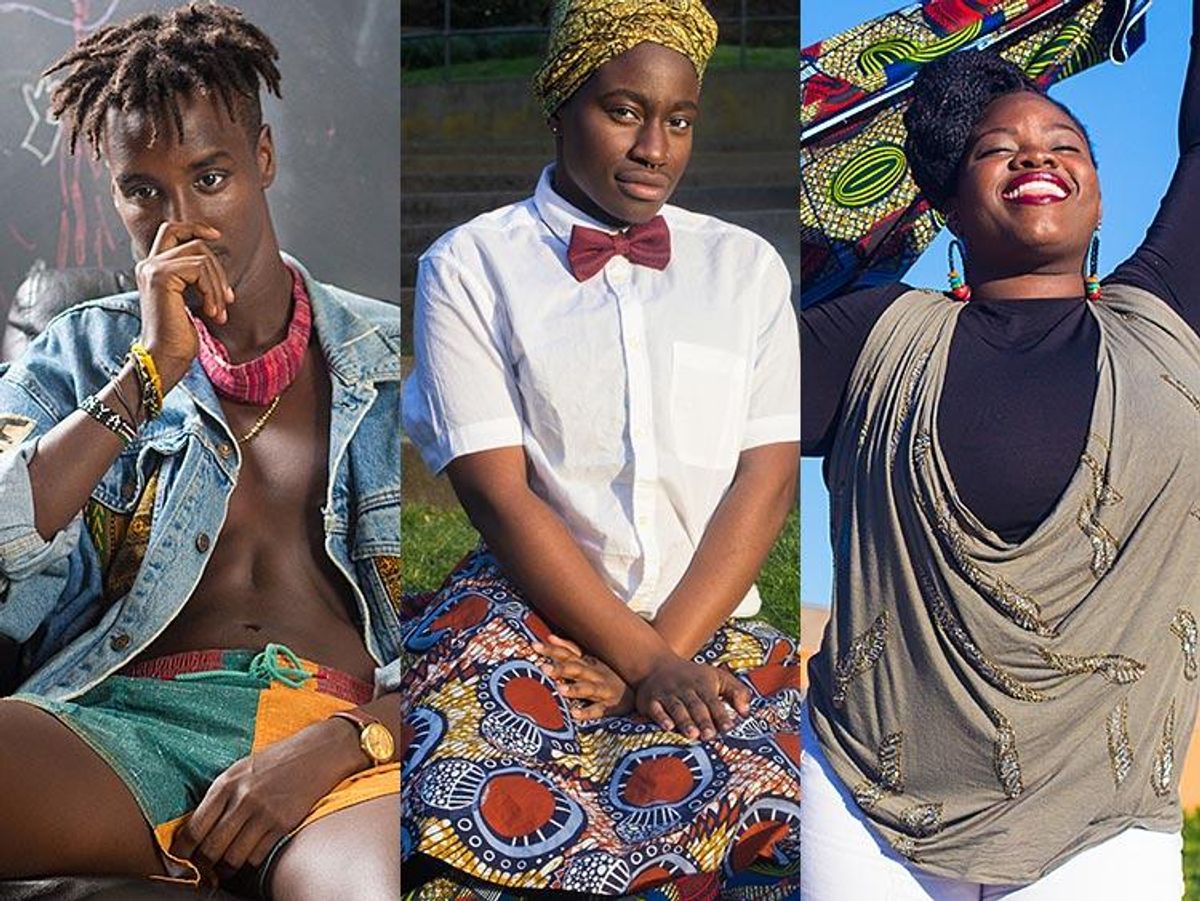

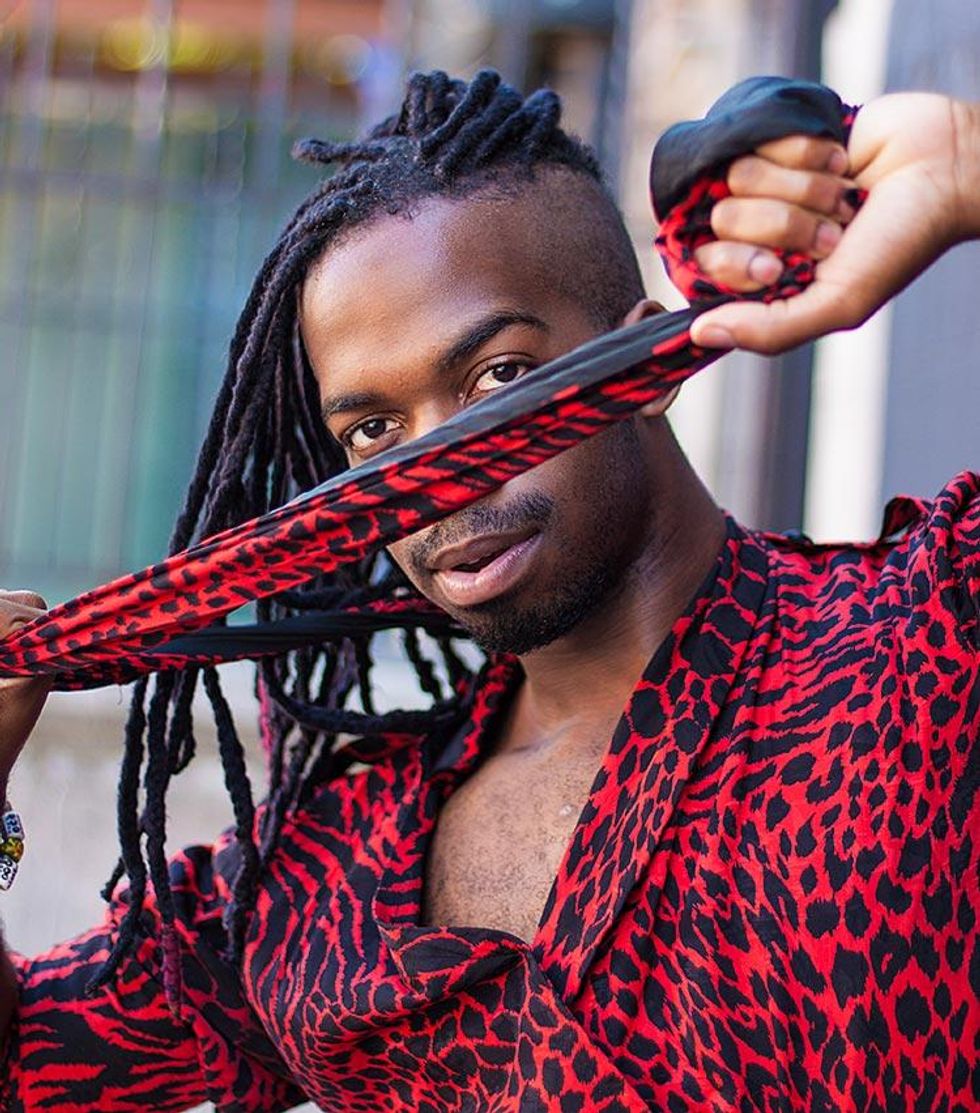
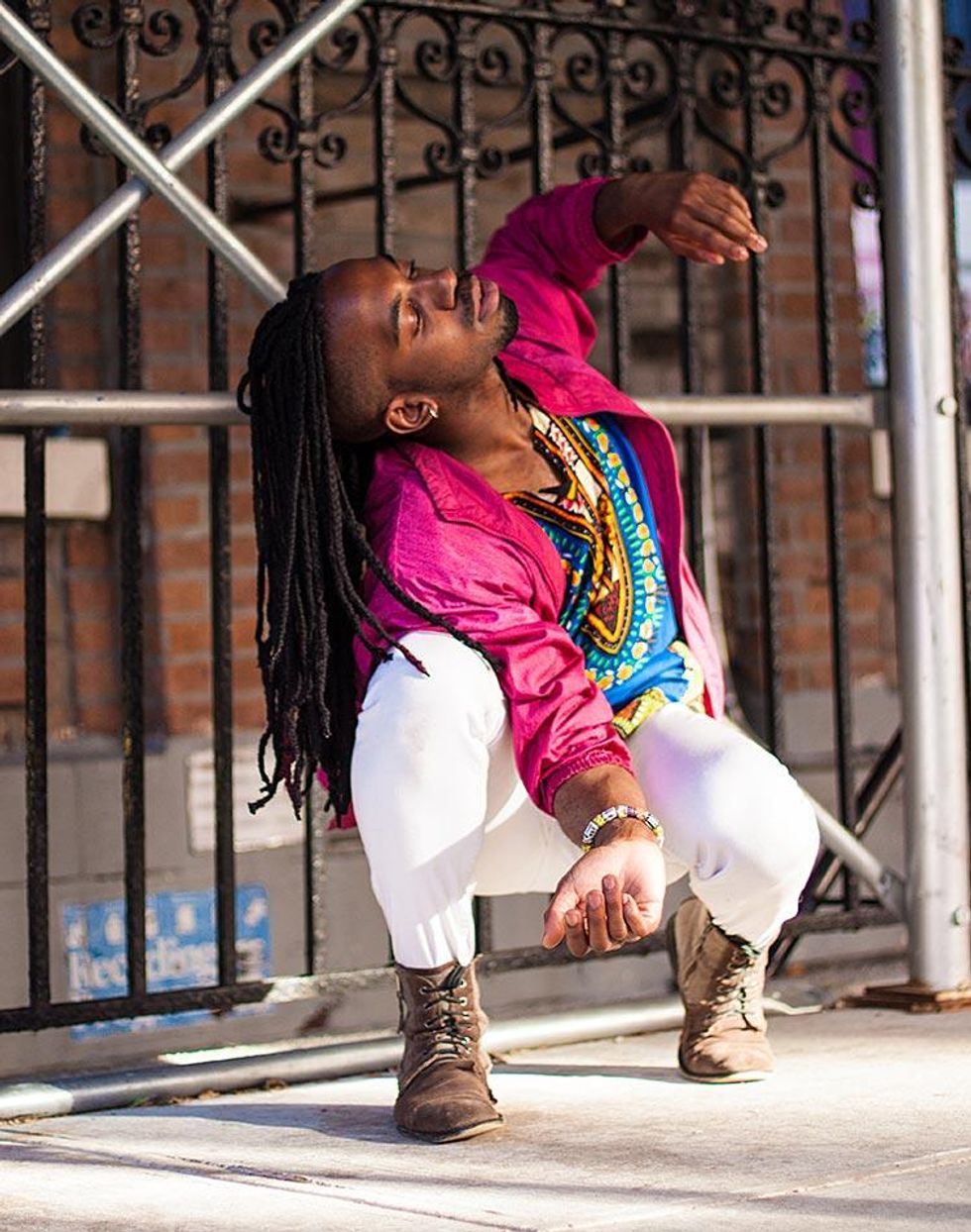
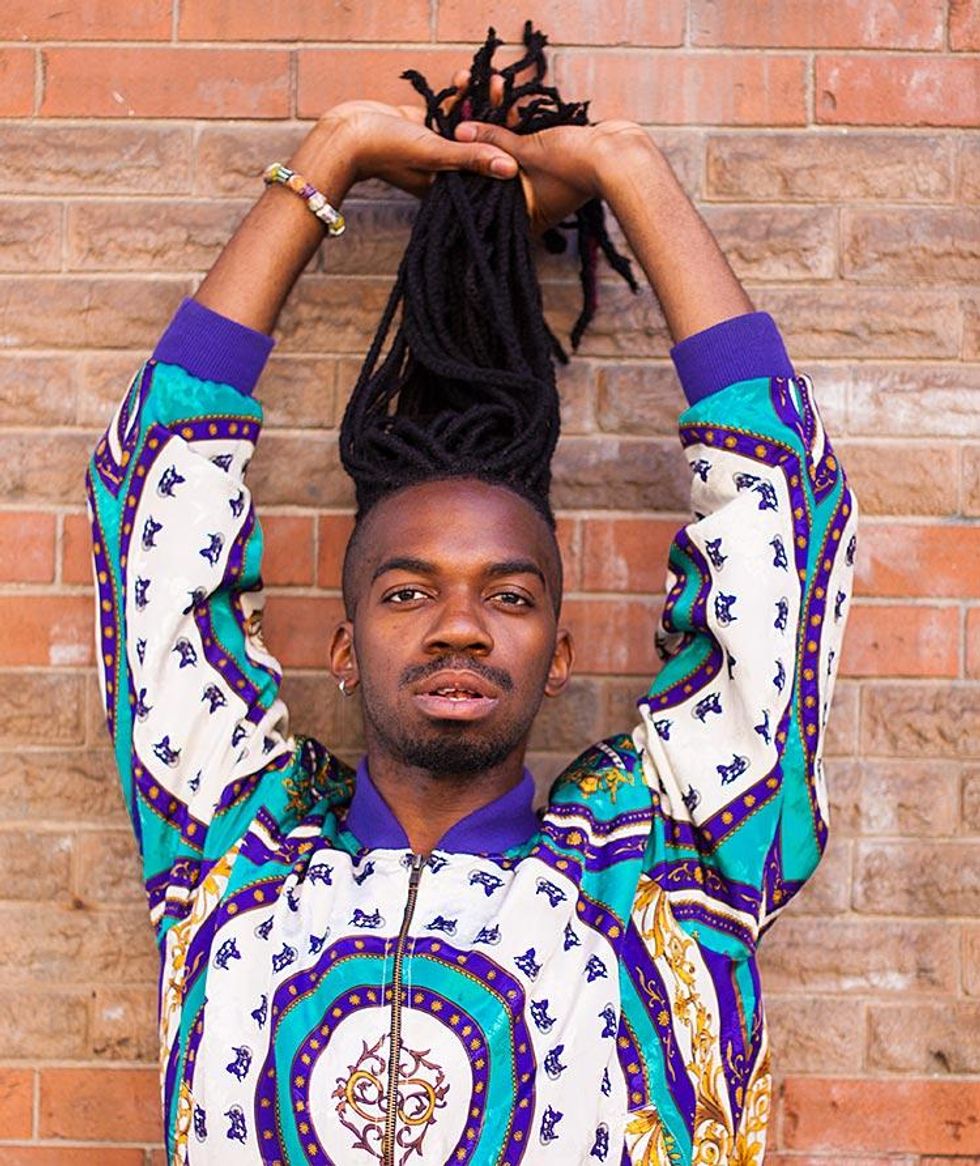
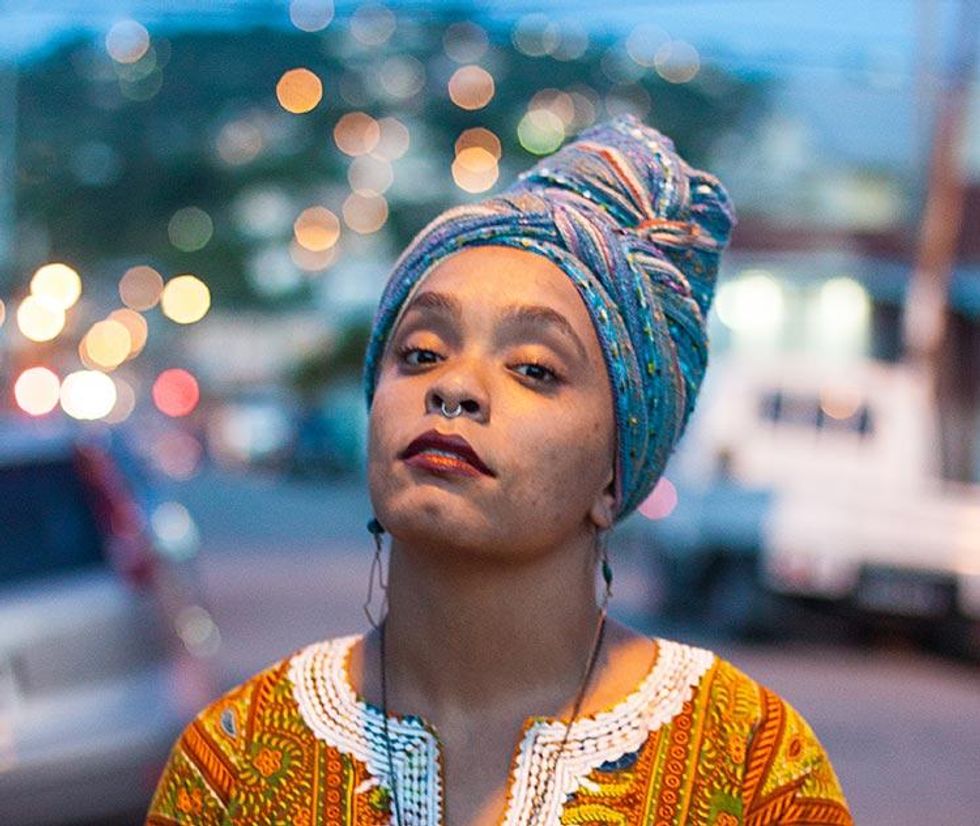
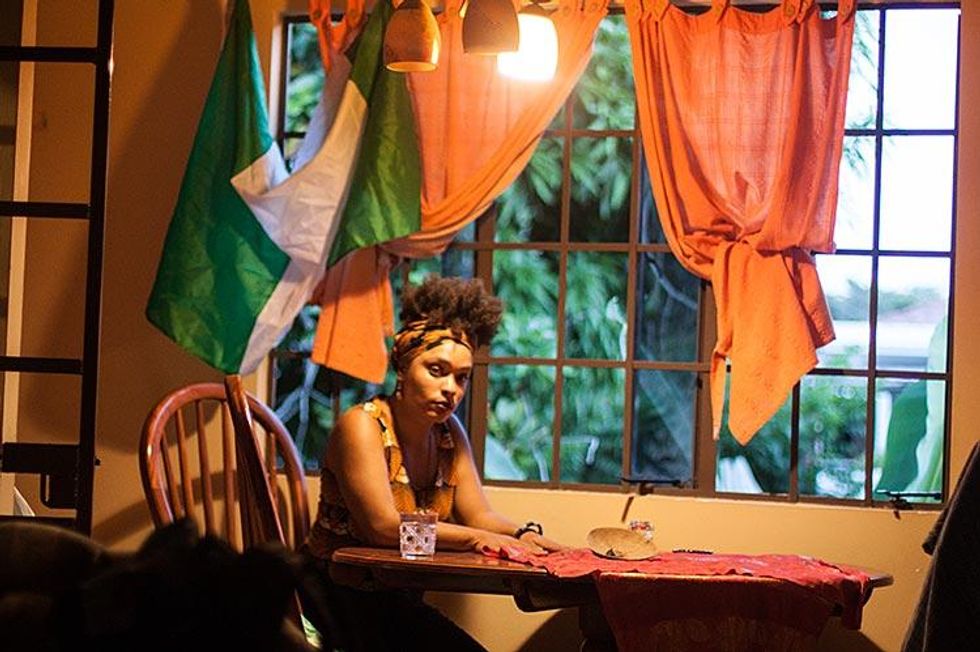
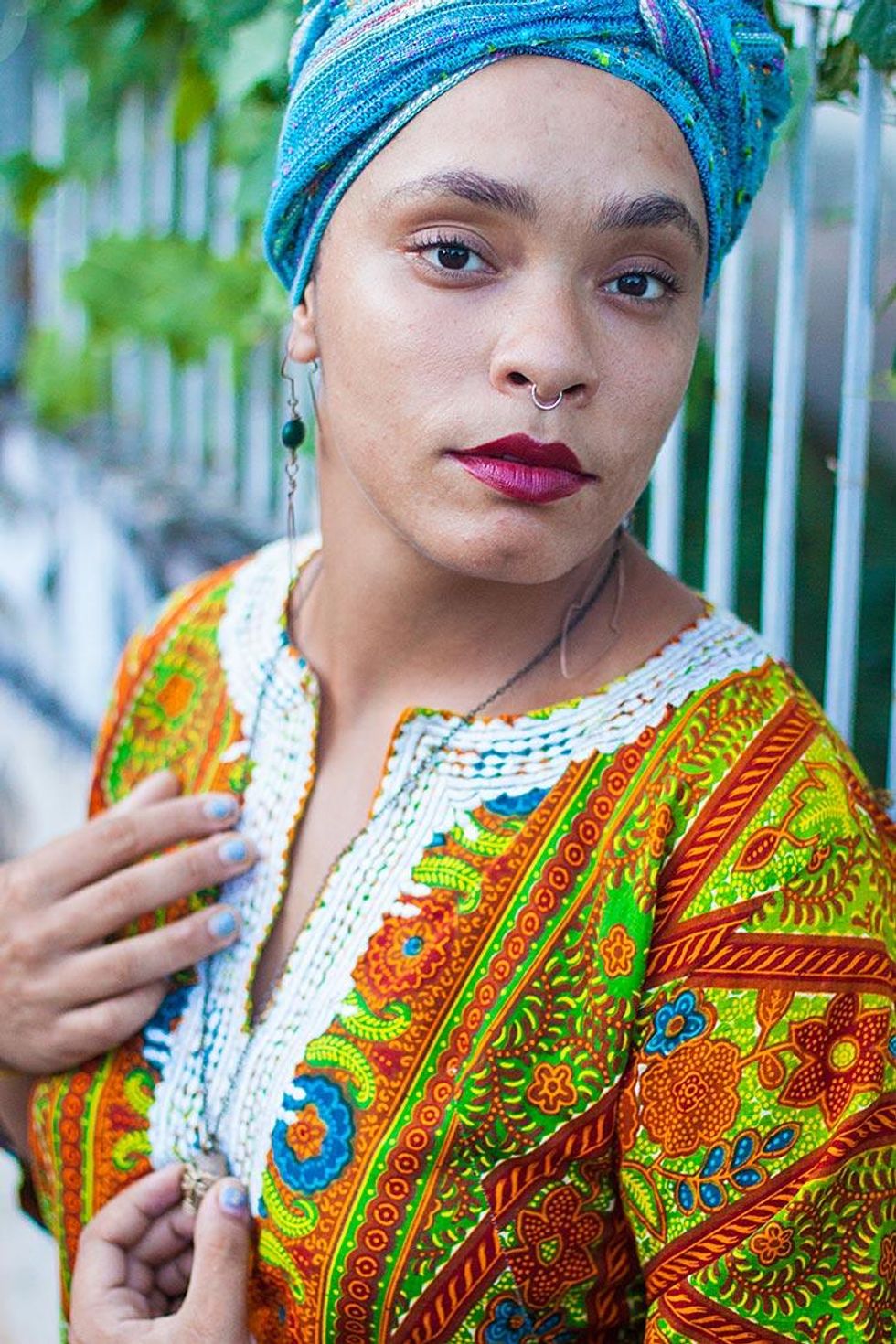
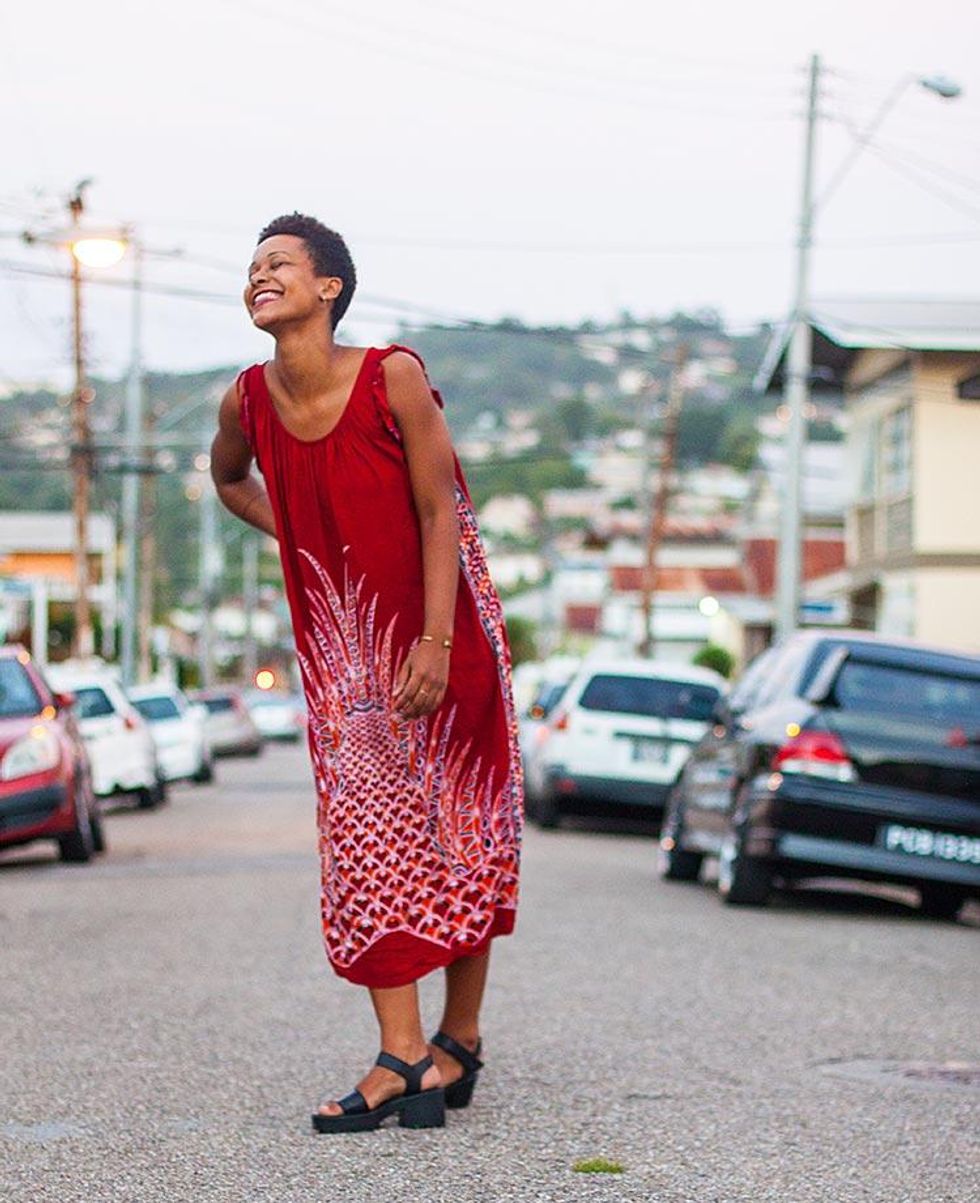
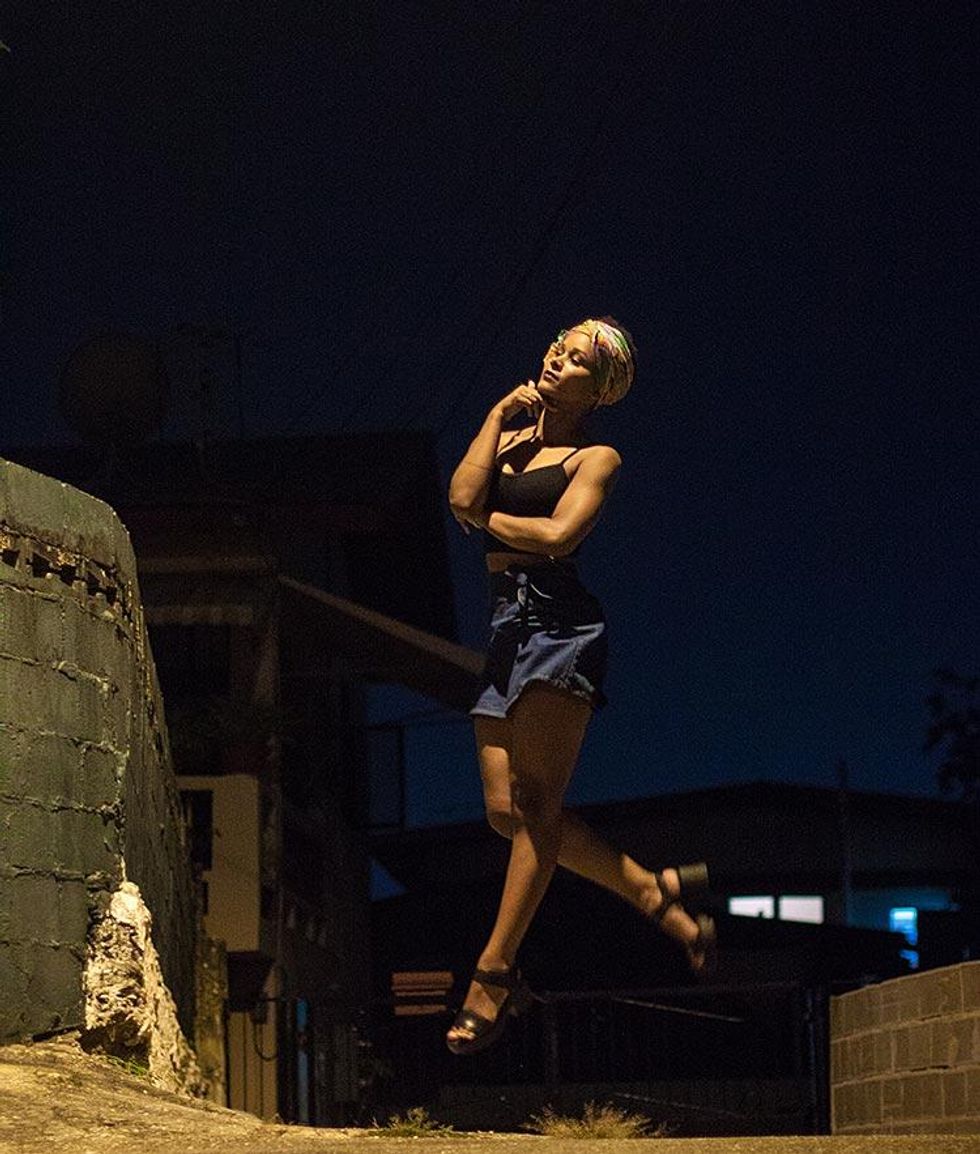
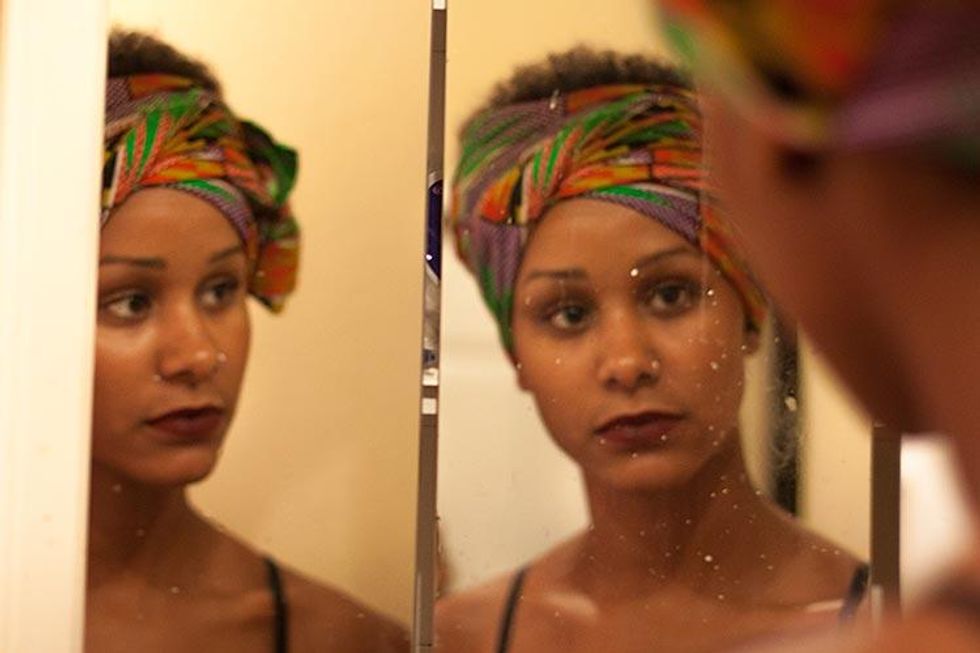
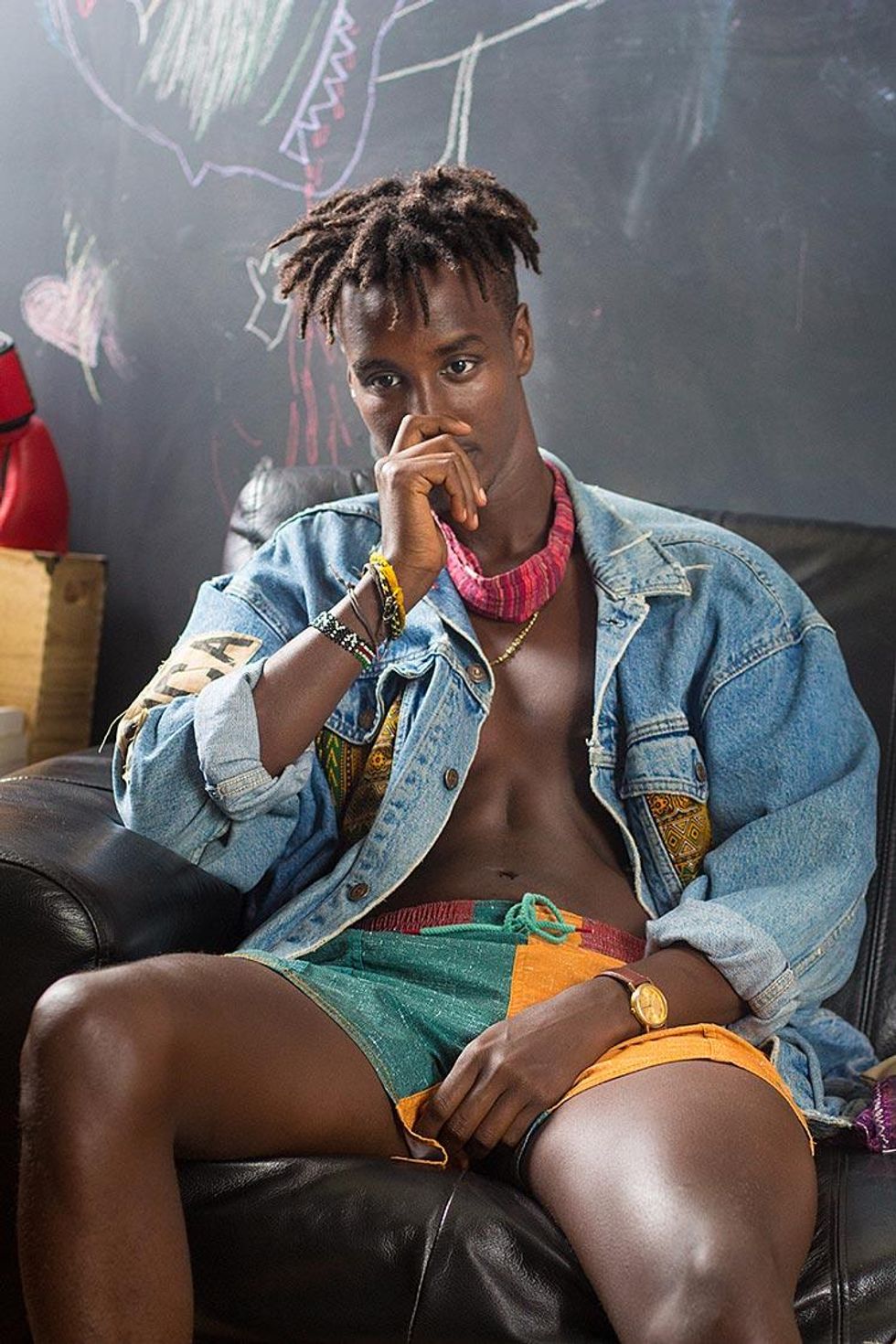
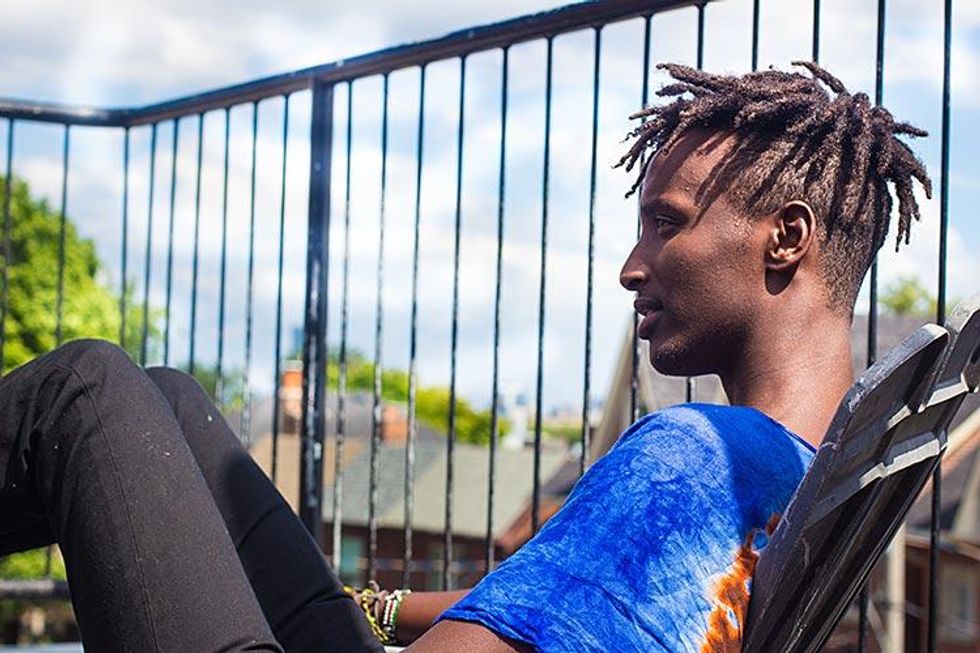
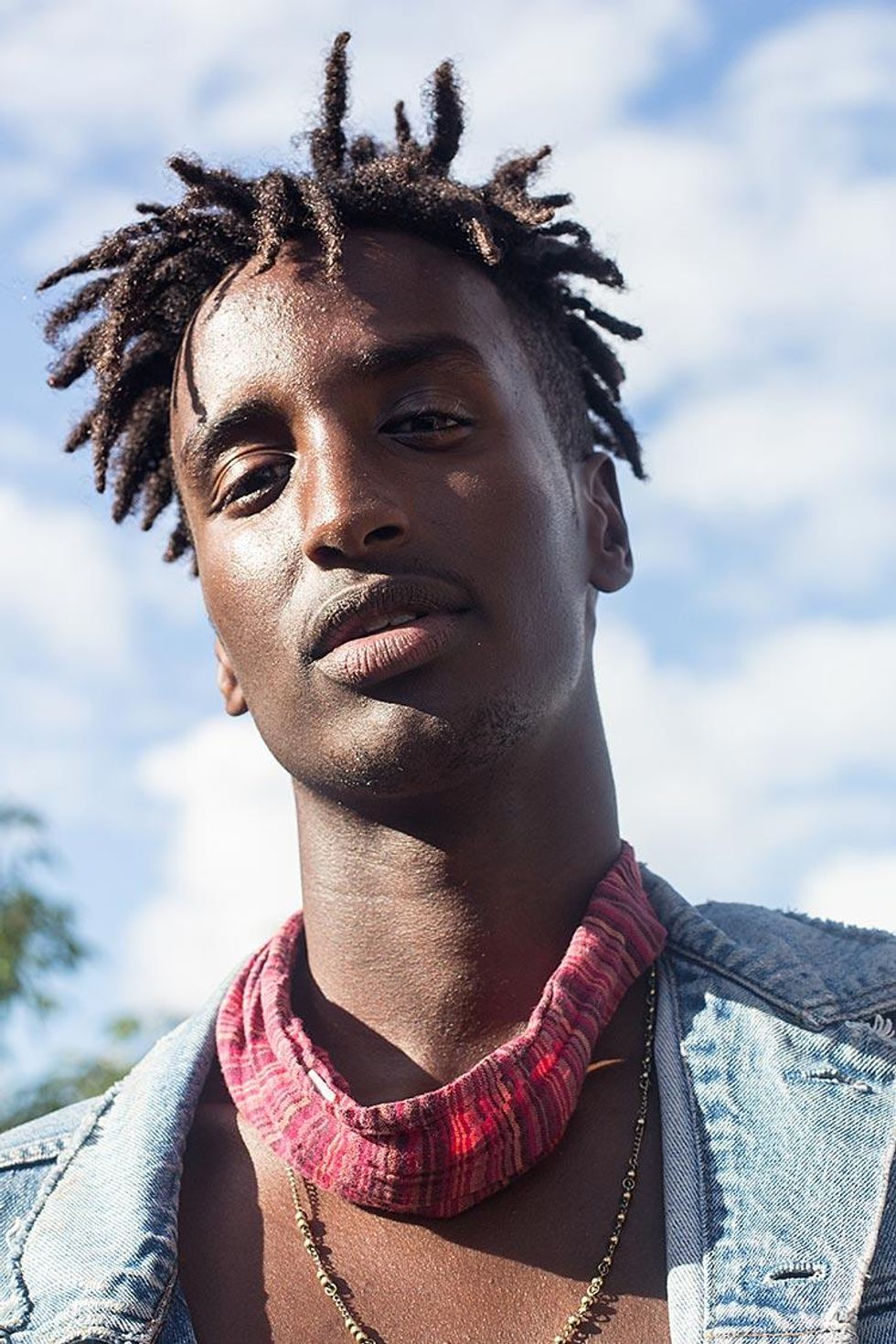
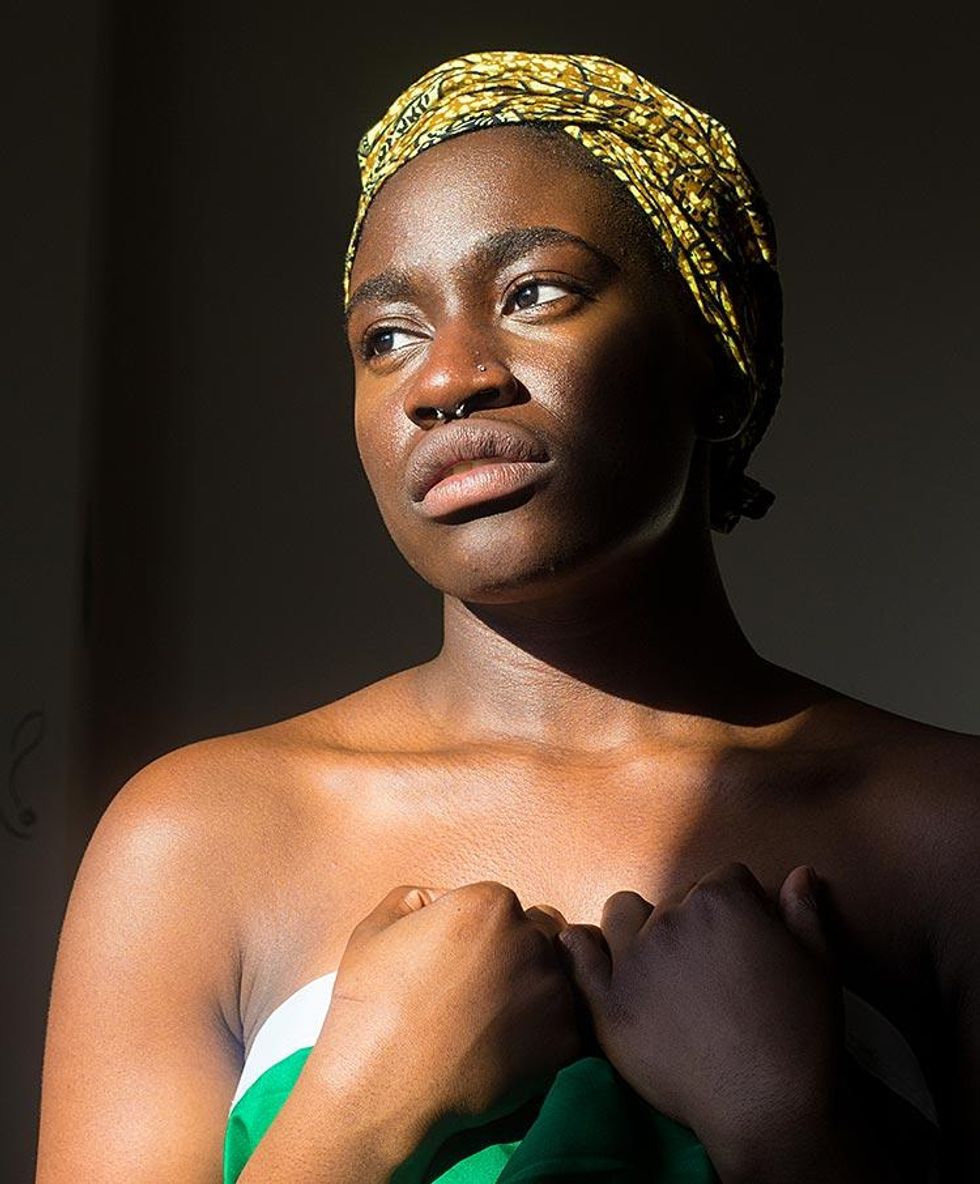
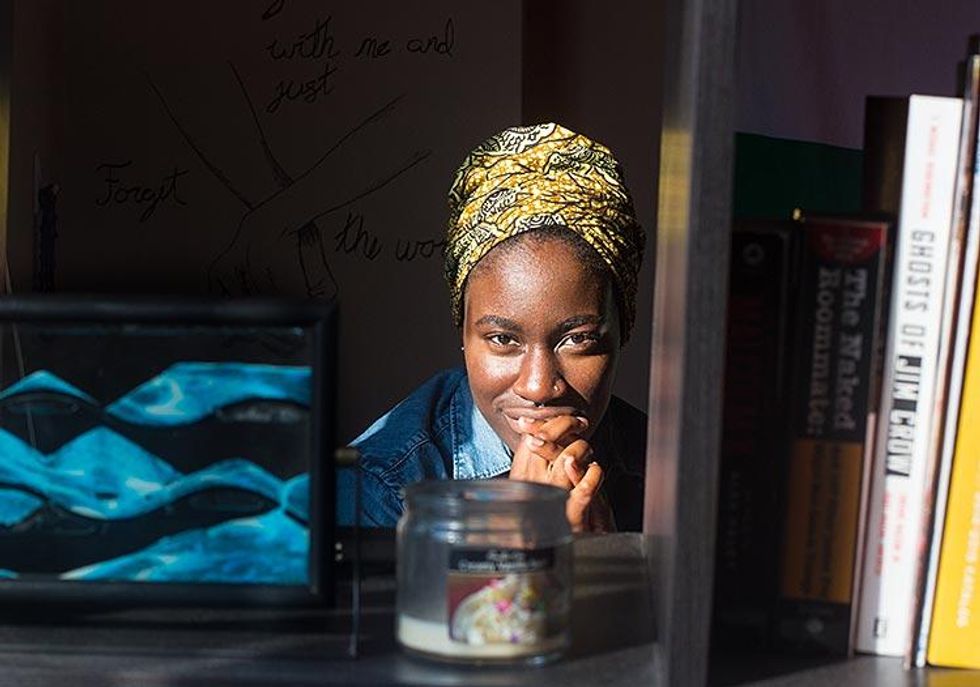
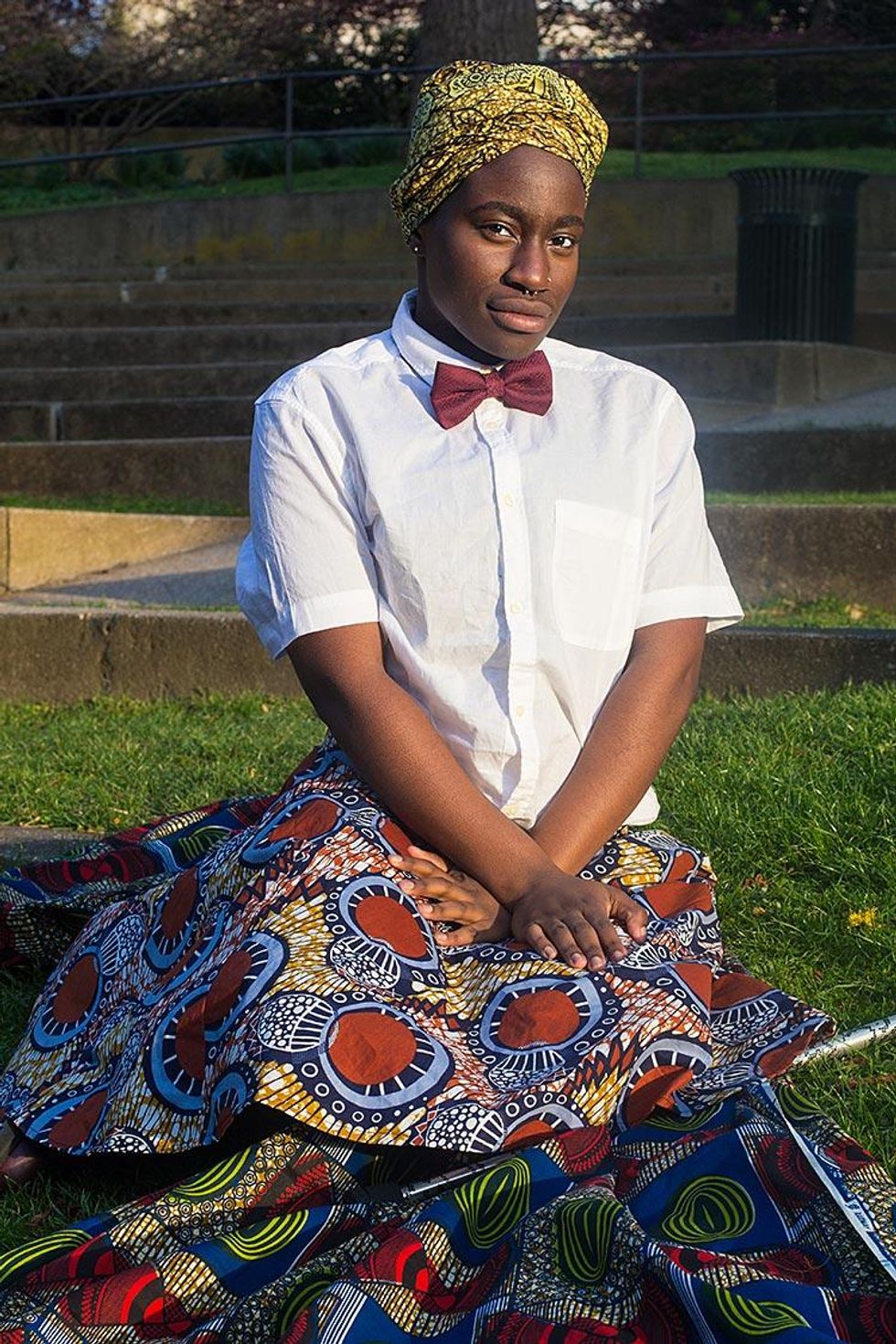
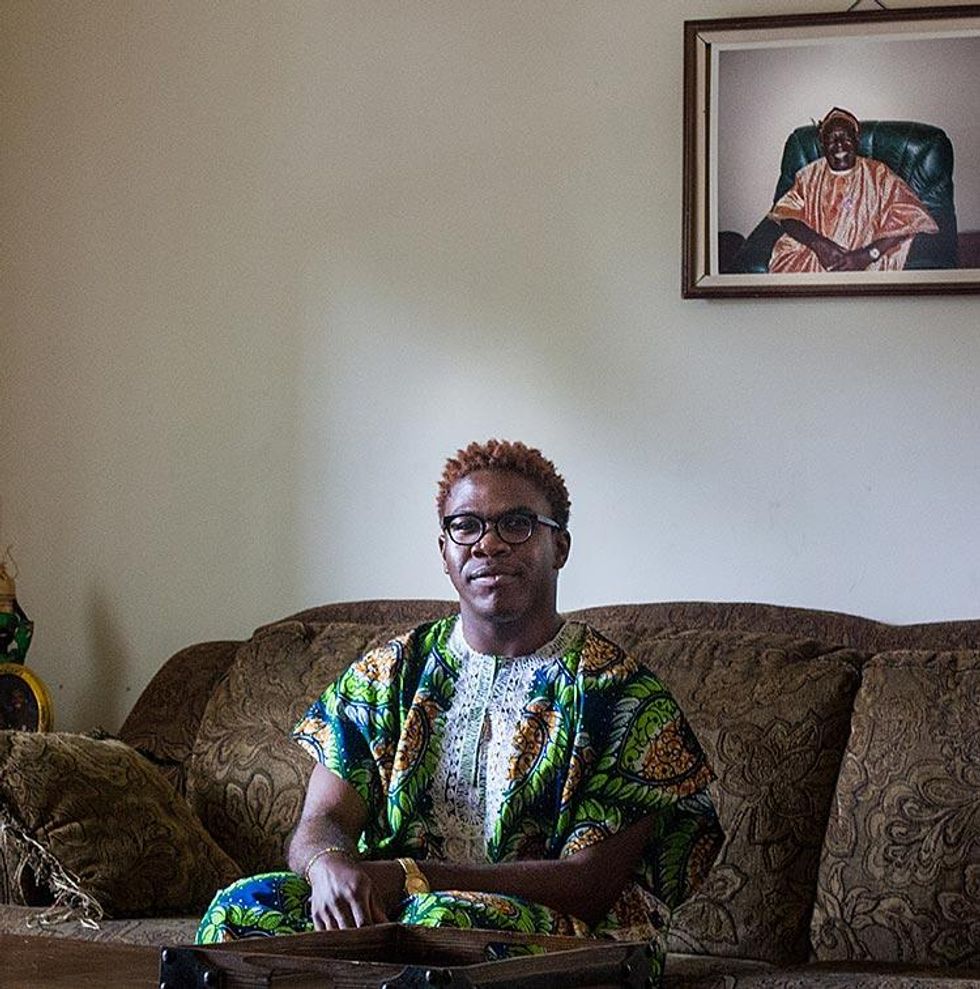
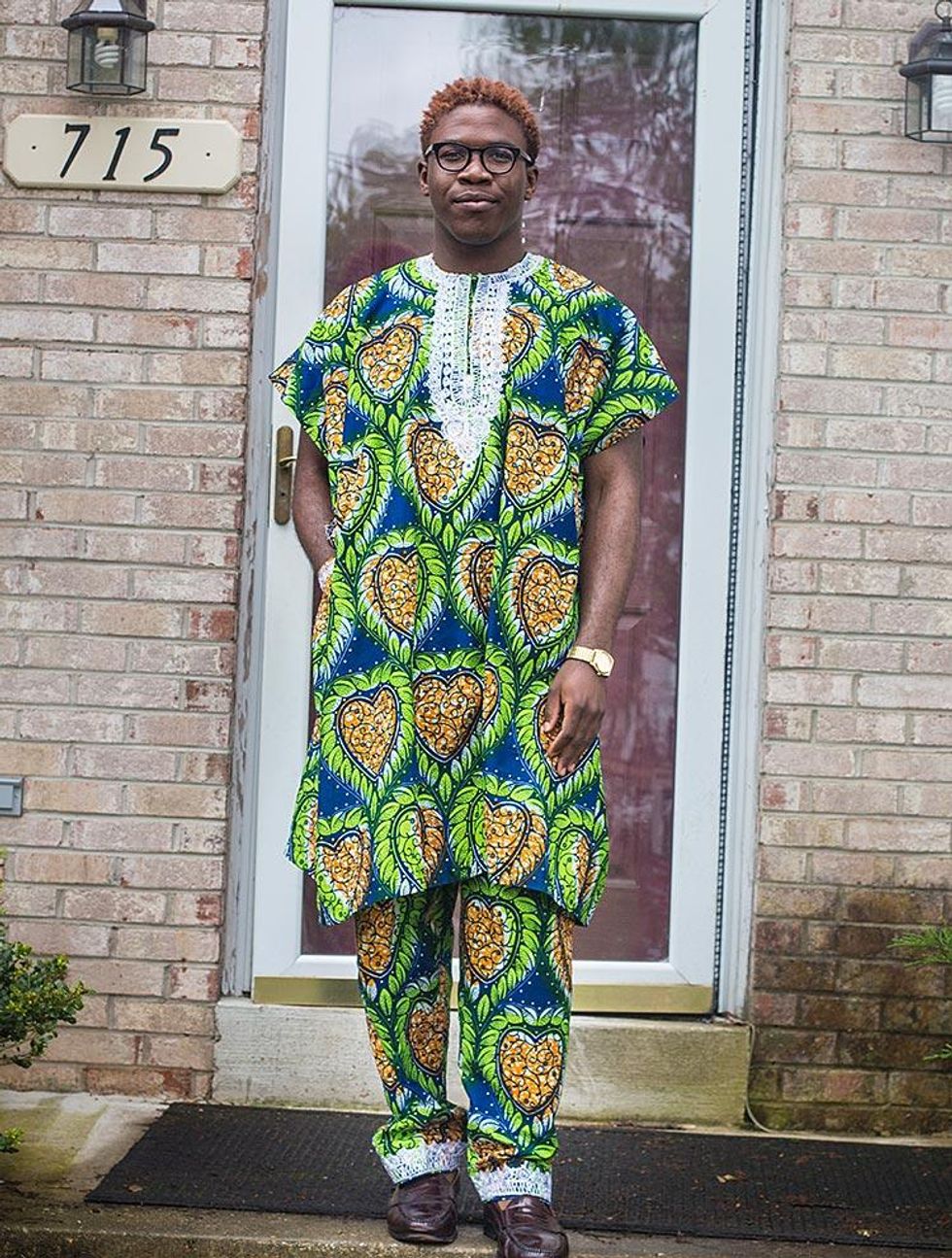
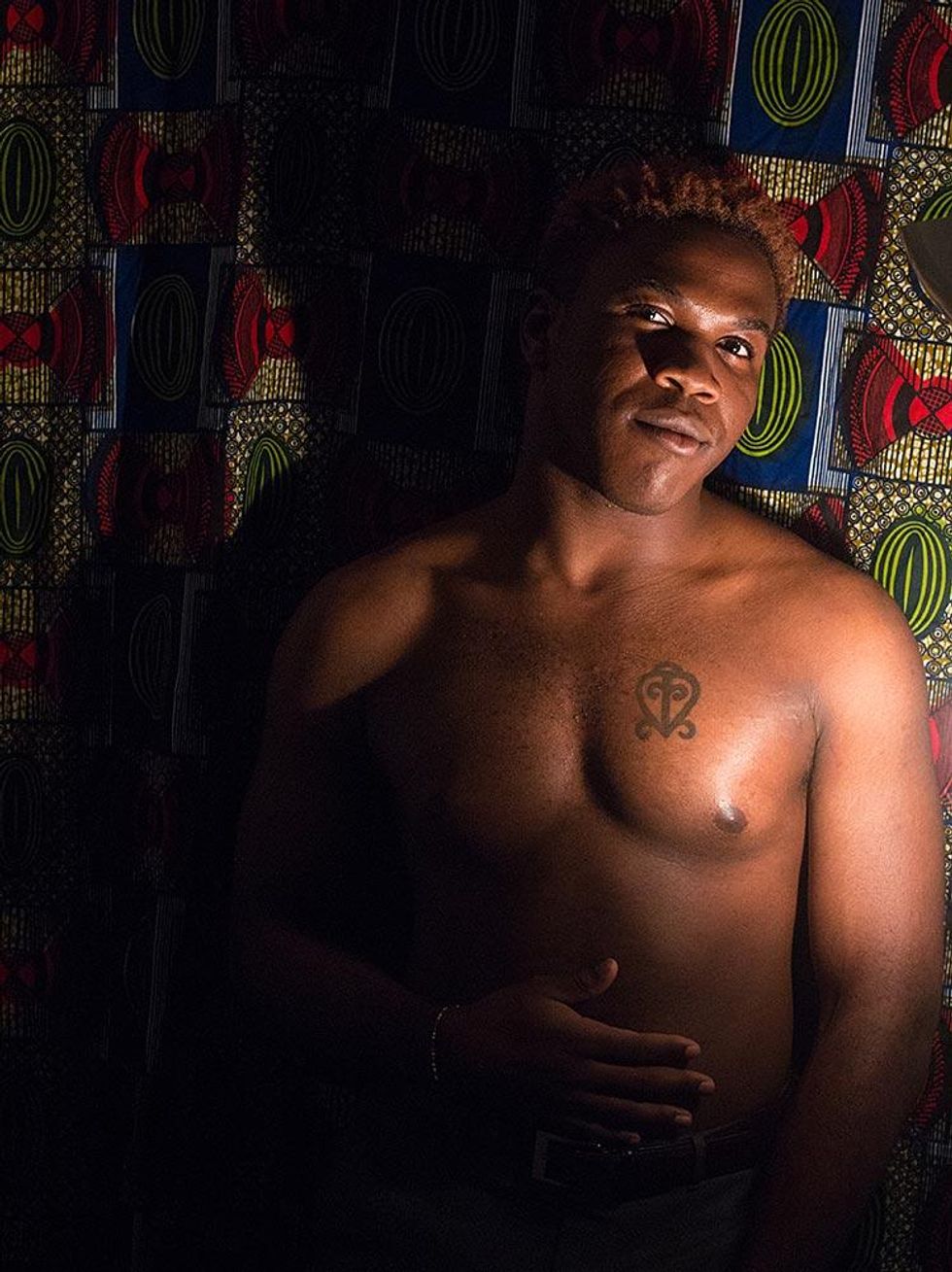
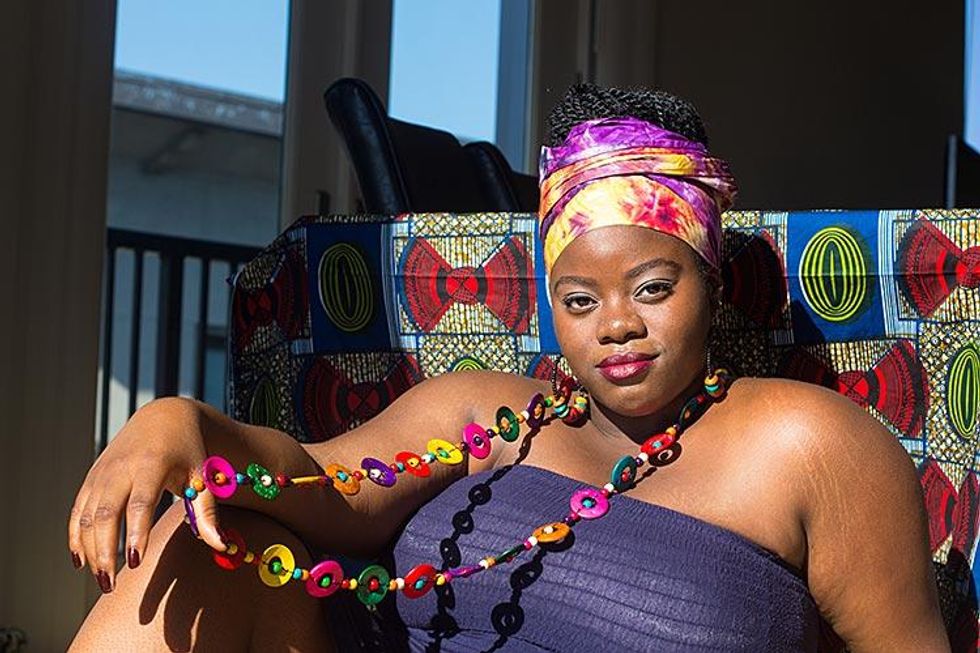
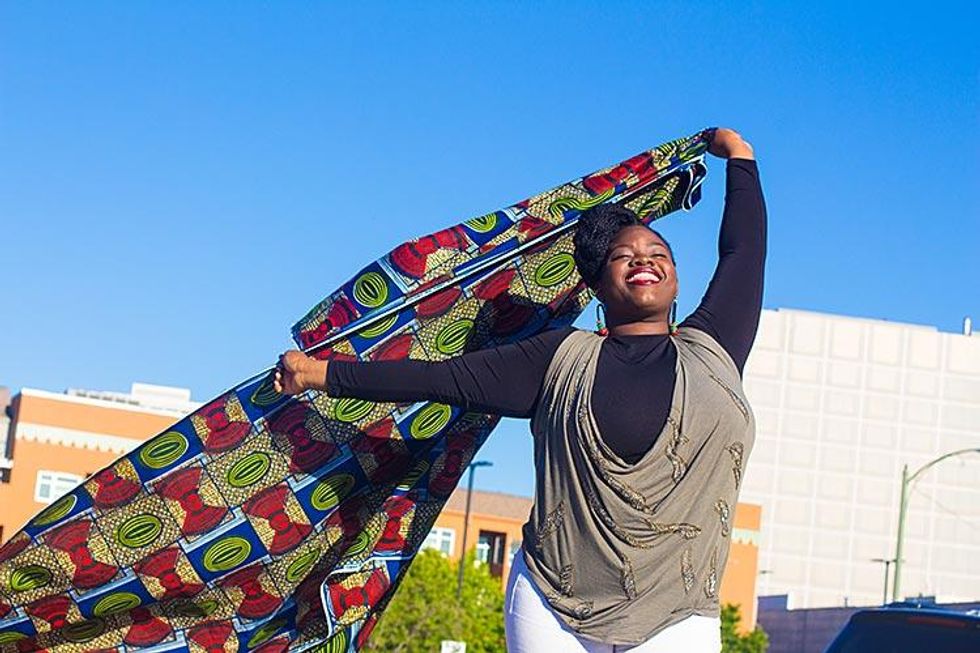
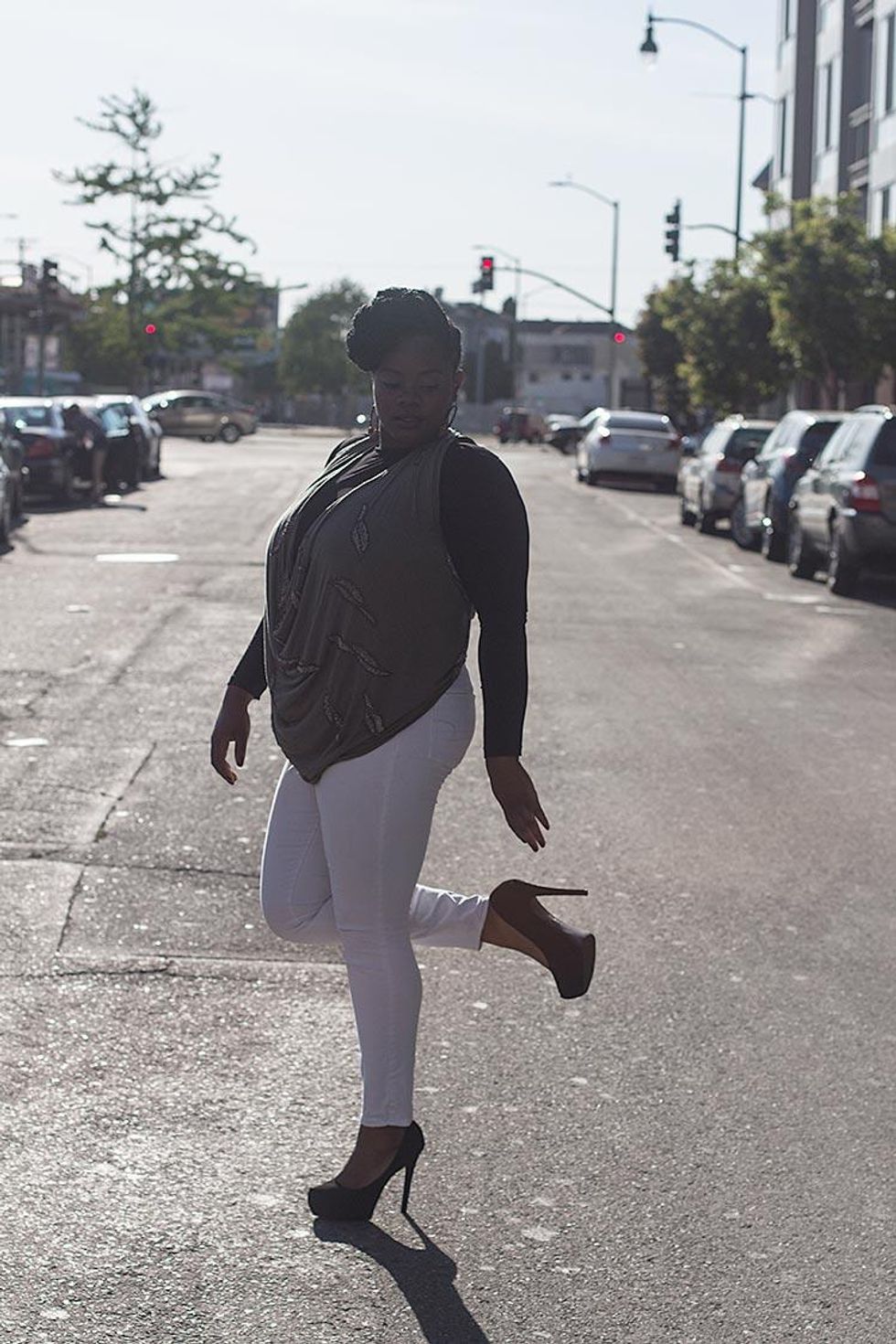
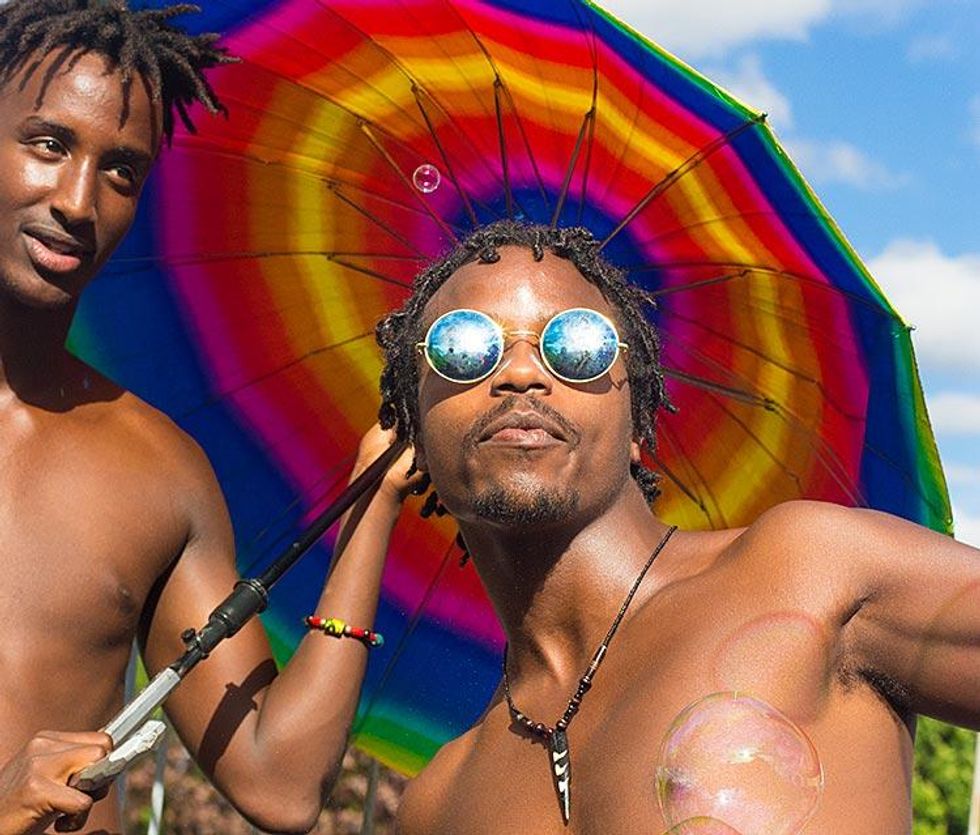
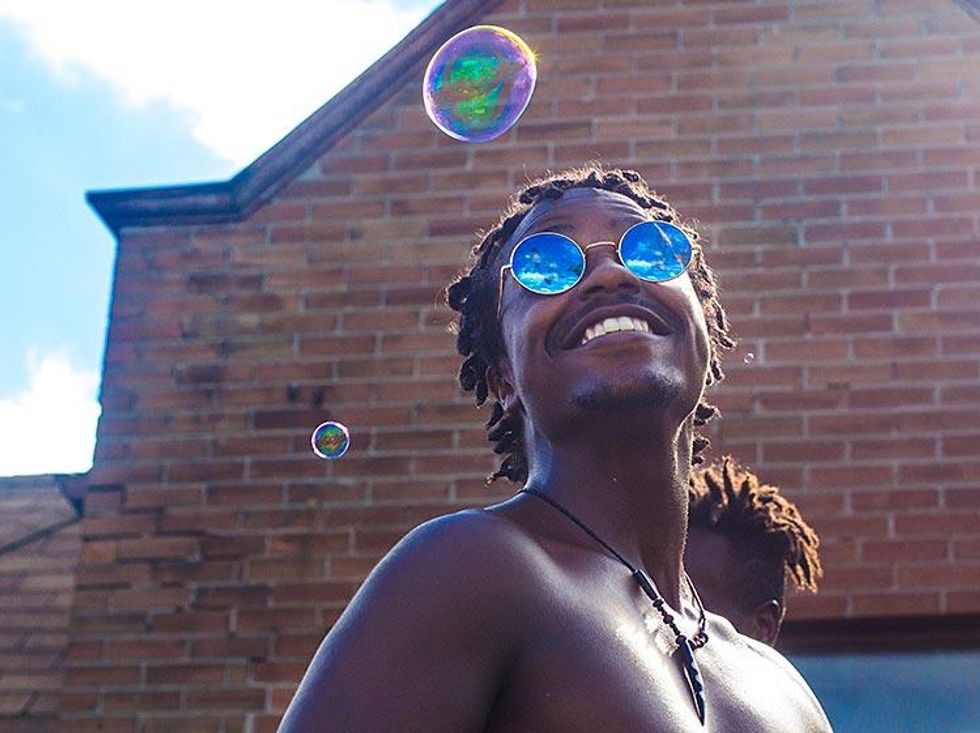
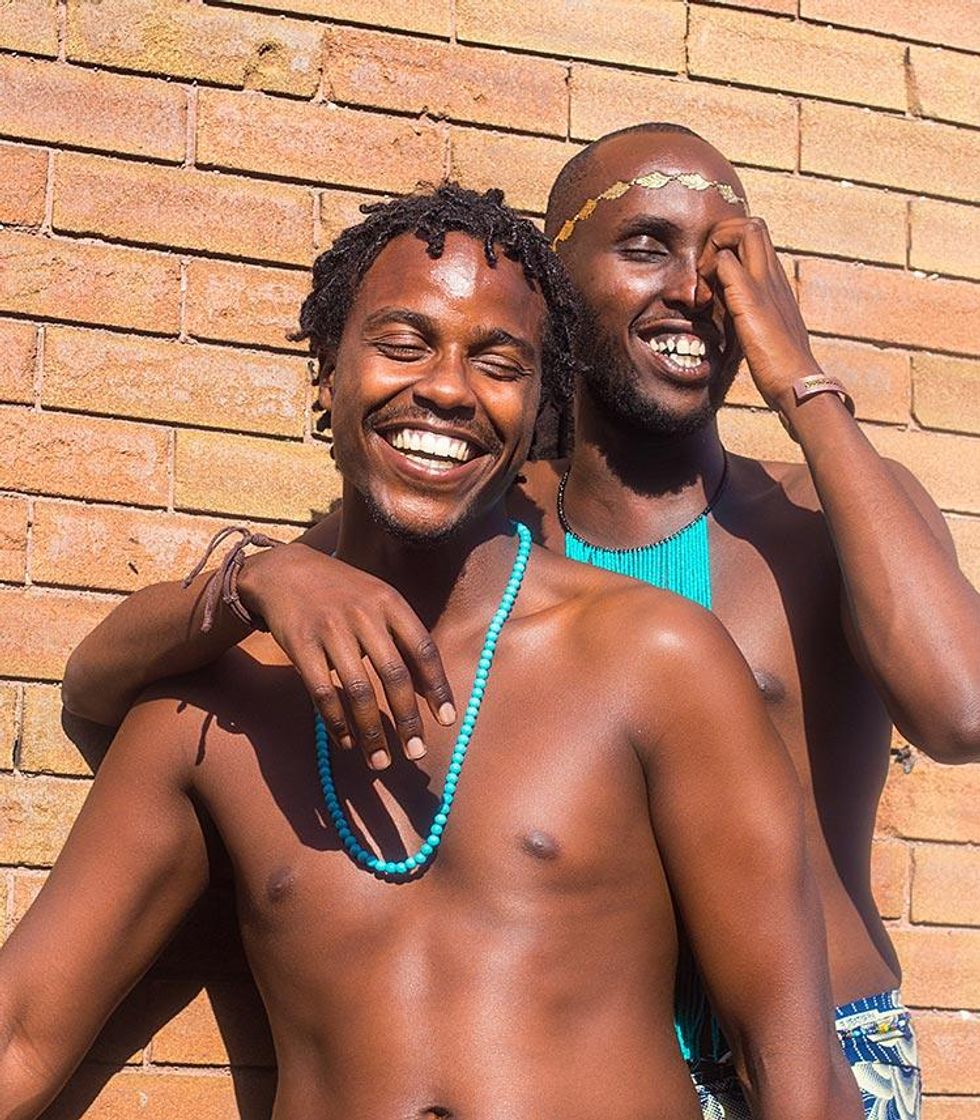
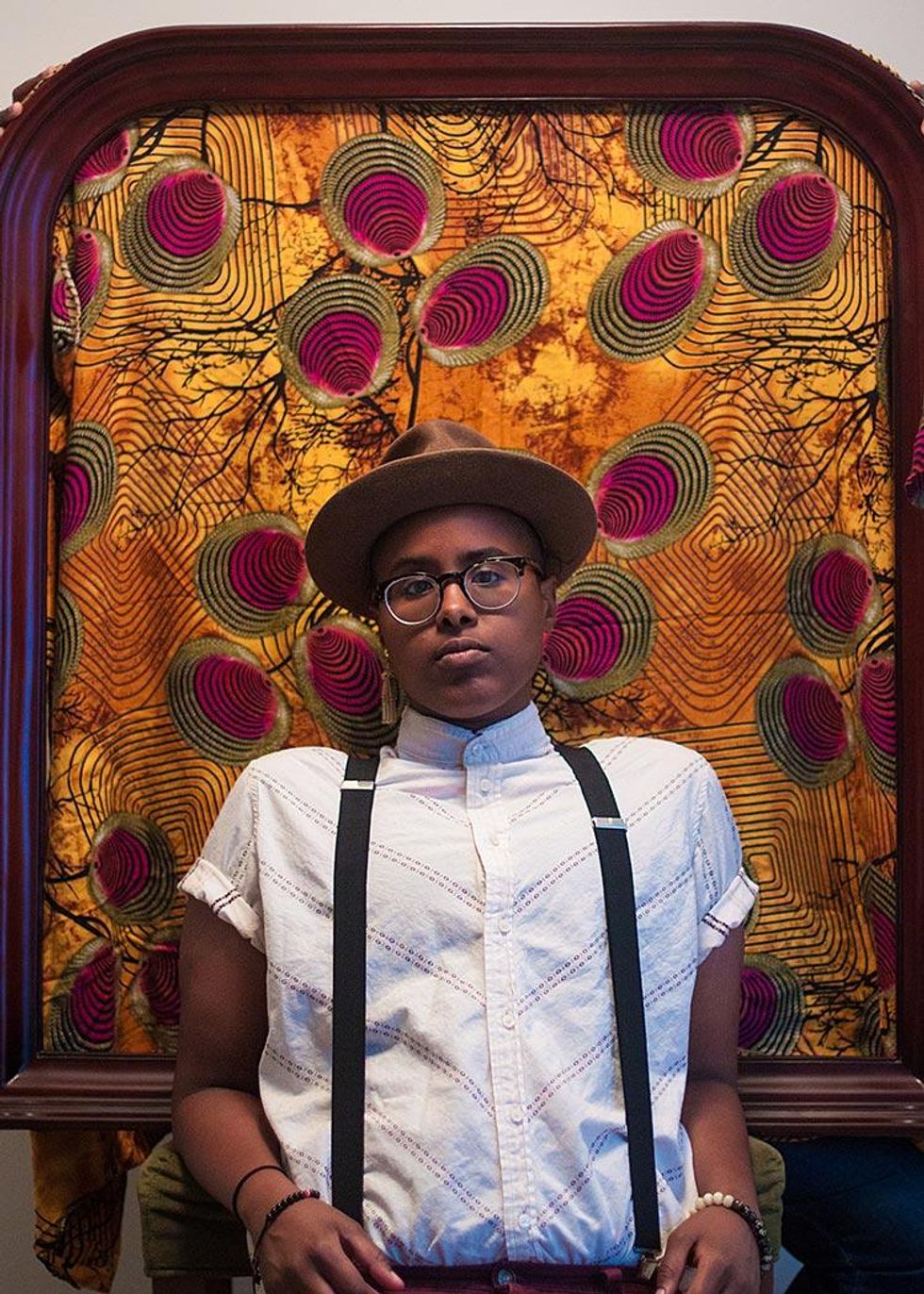
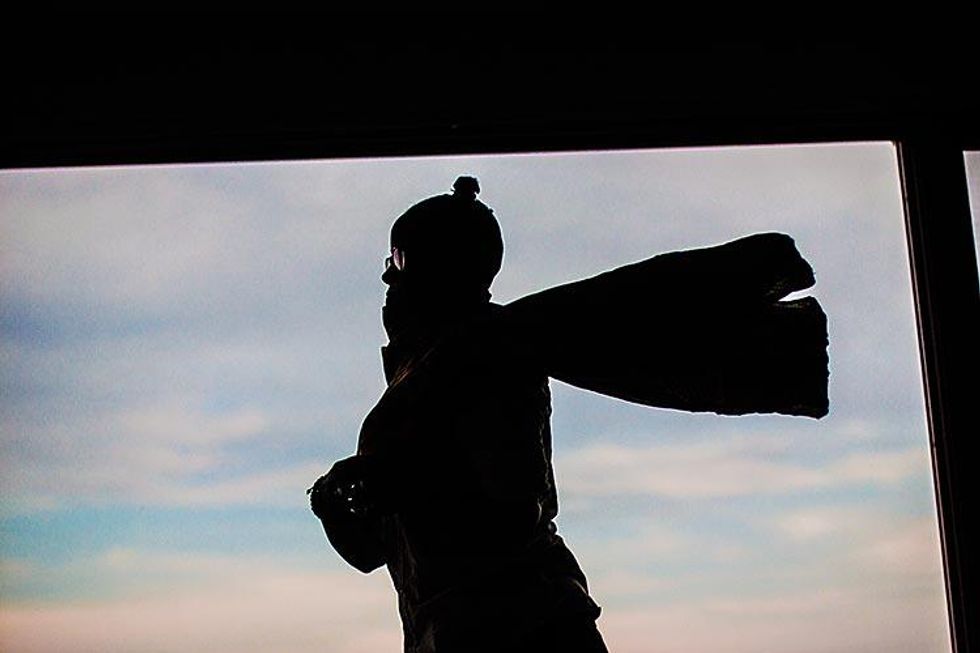
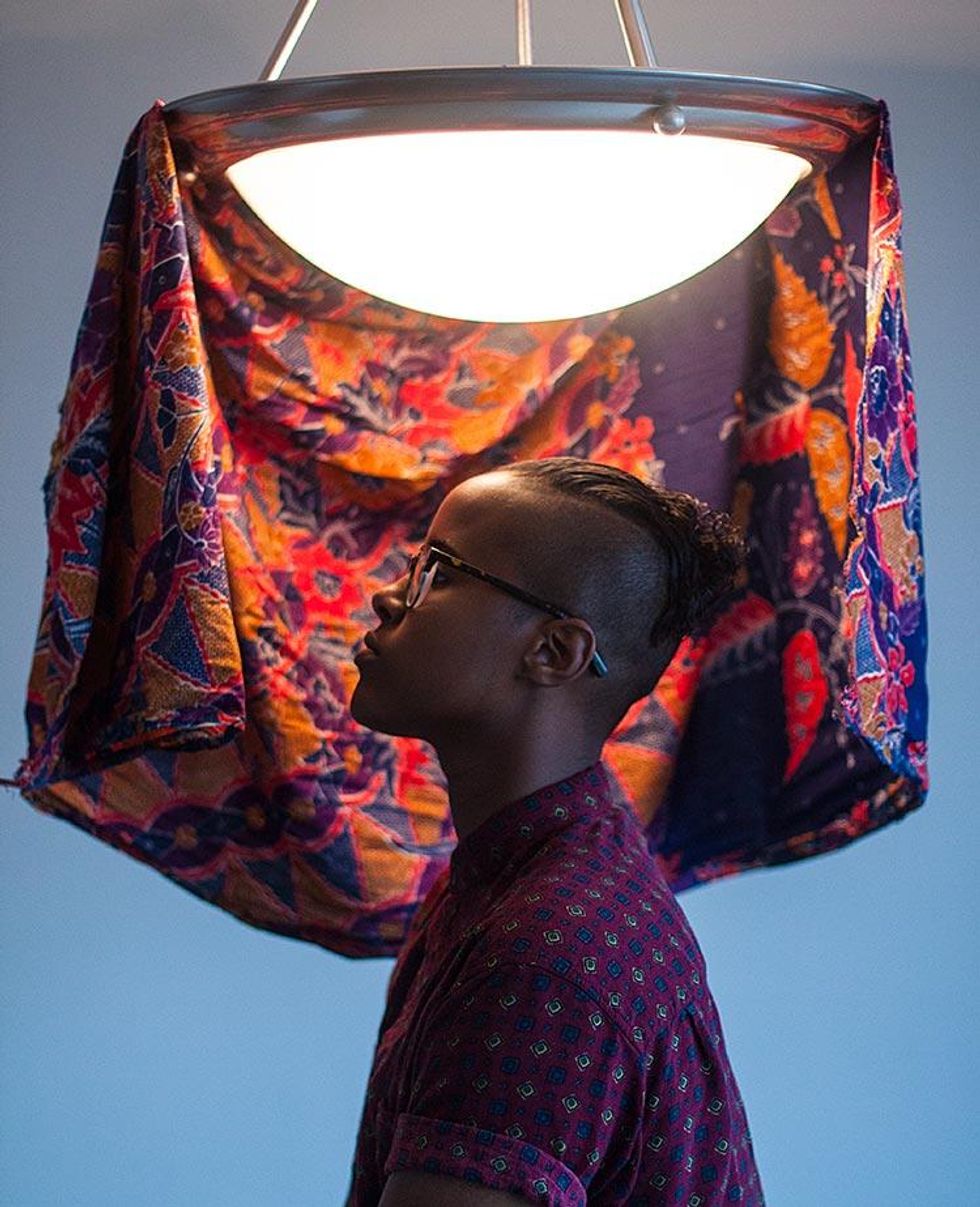
















































































Viral post saying Republicans 'have two daddies now' has MAGA hot and bothered